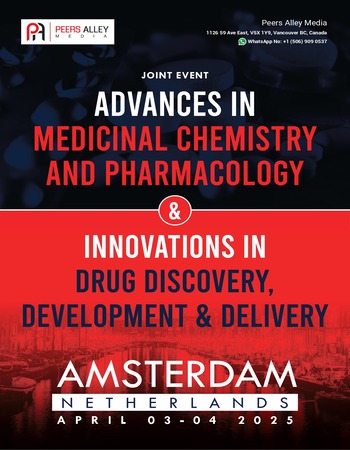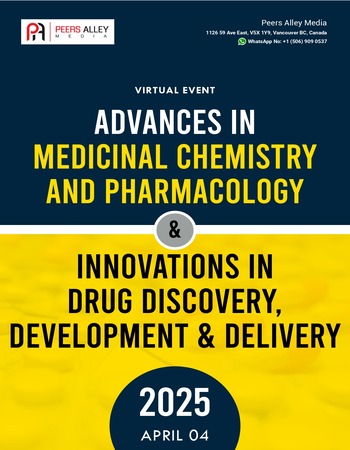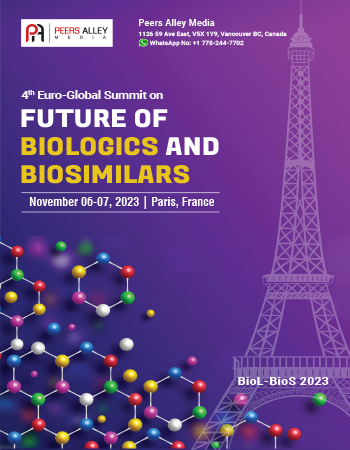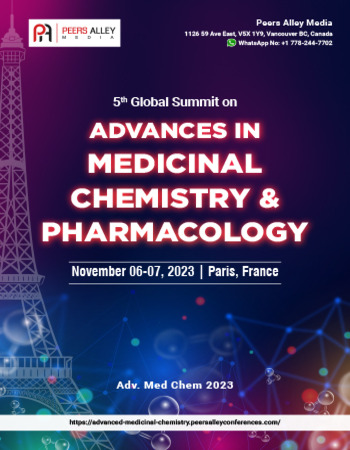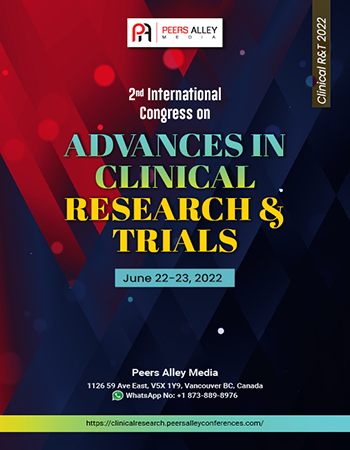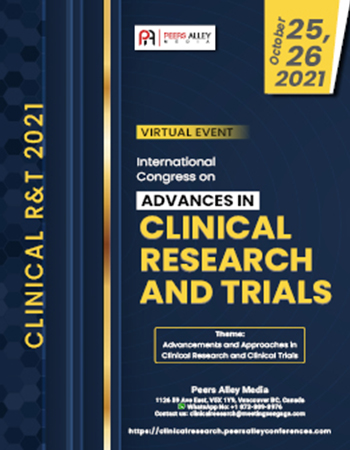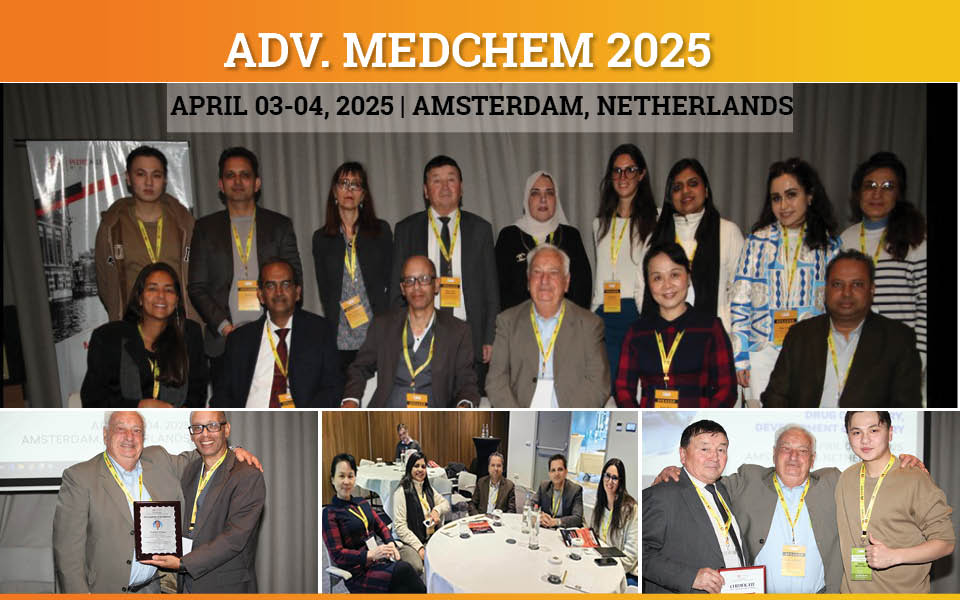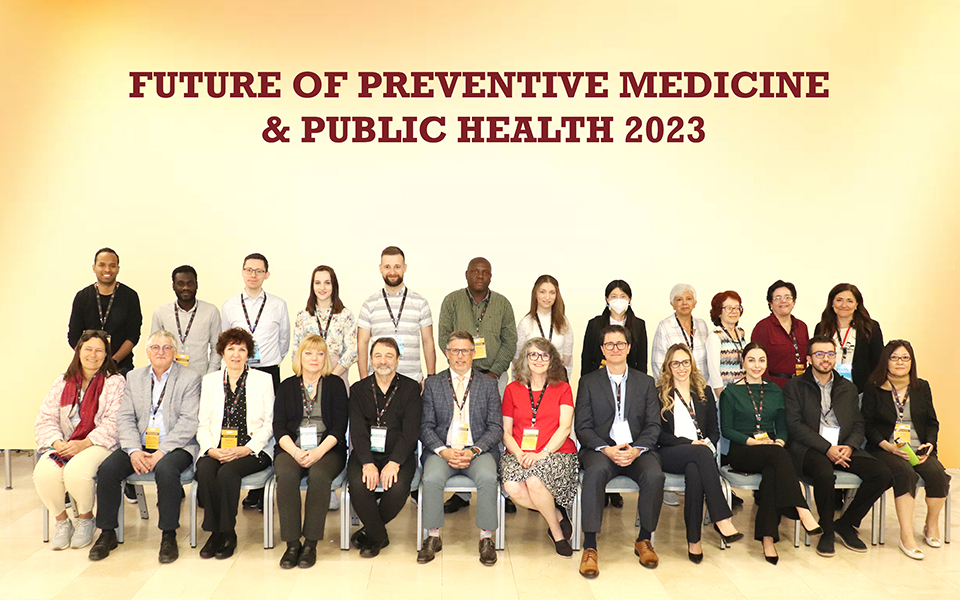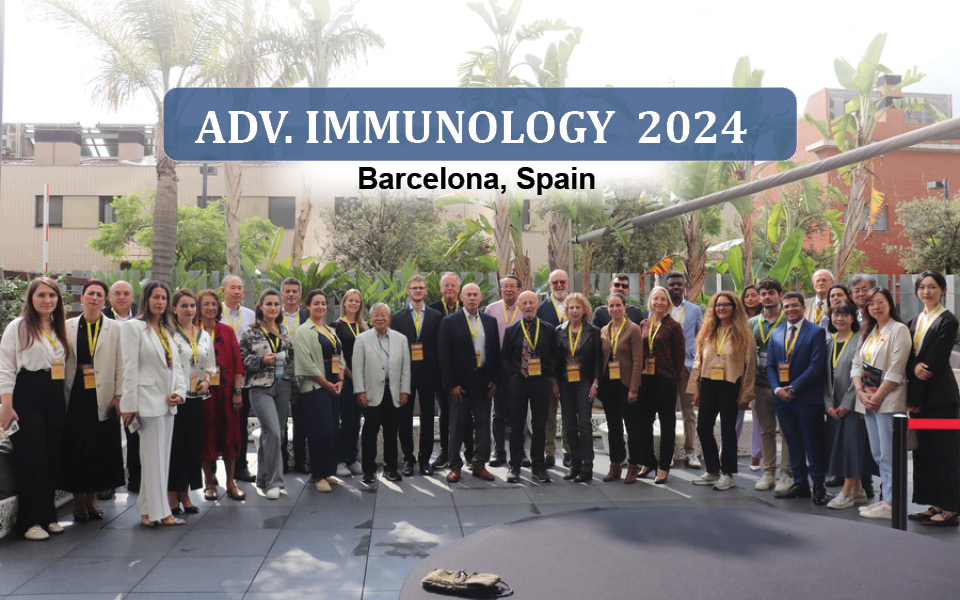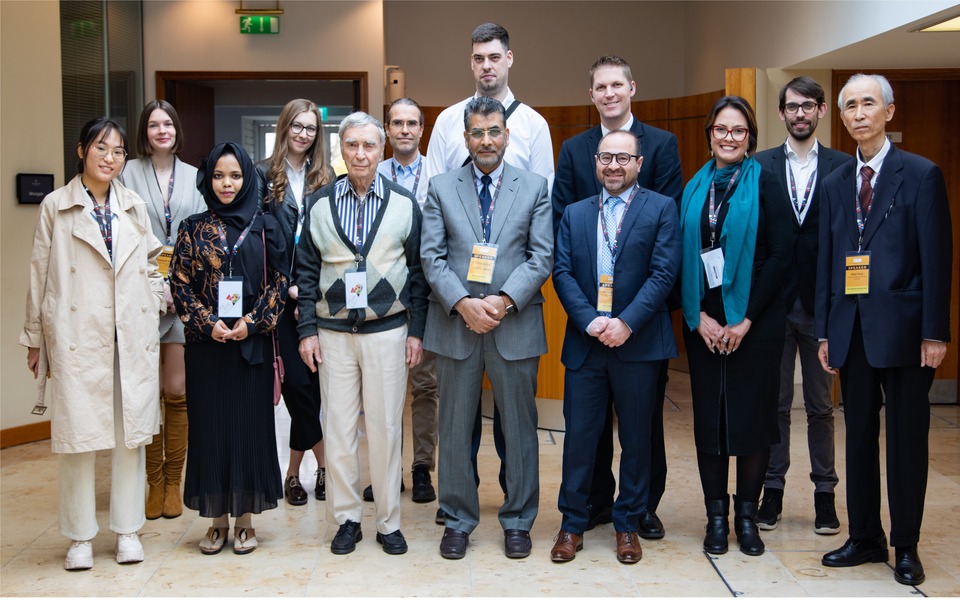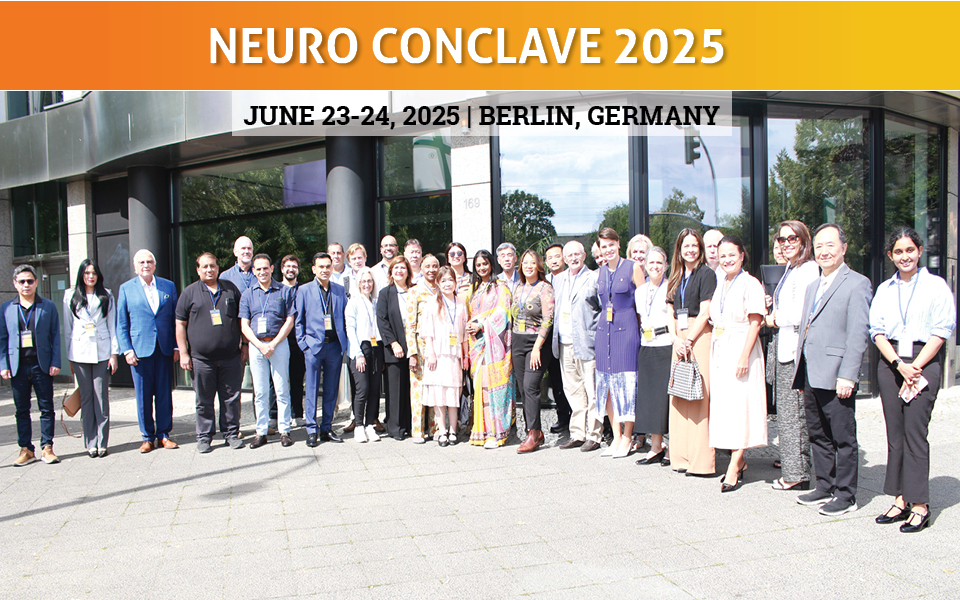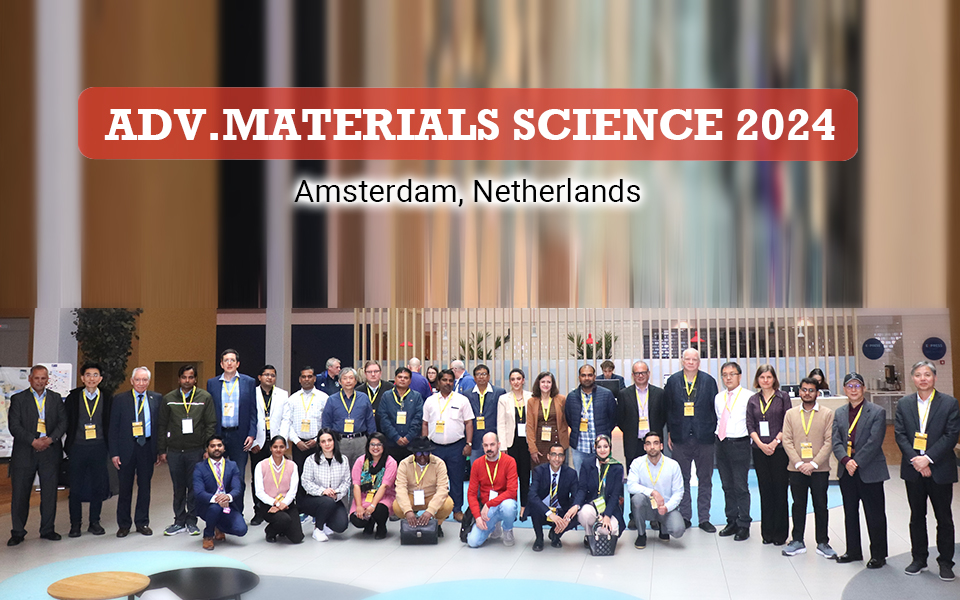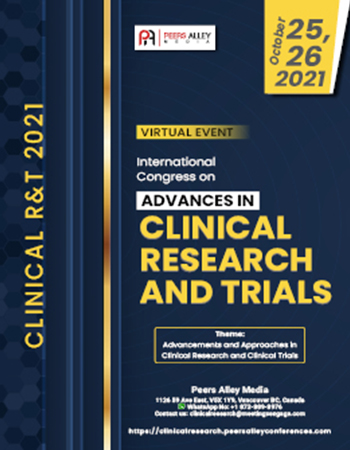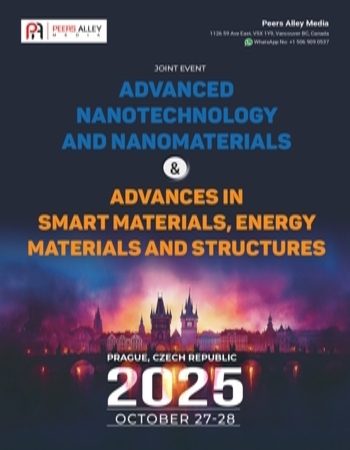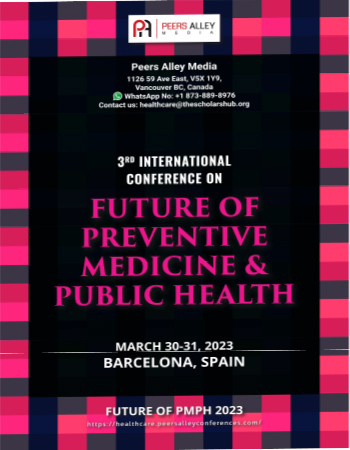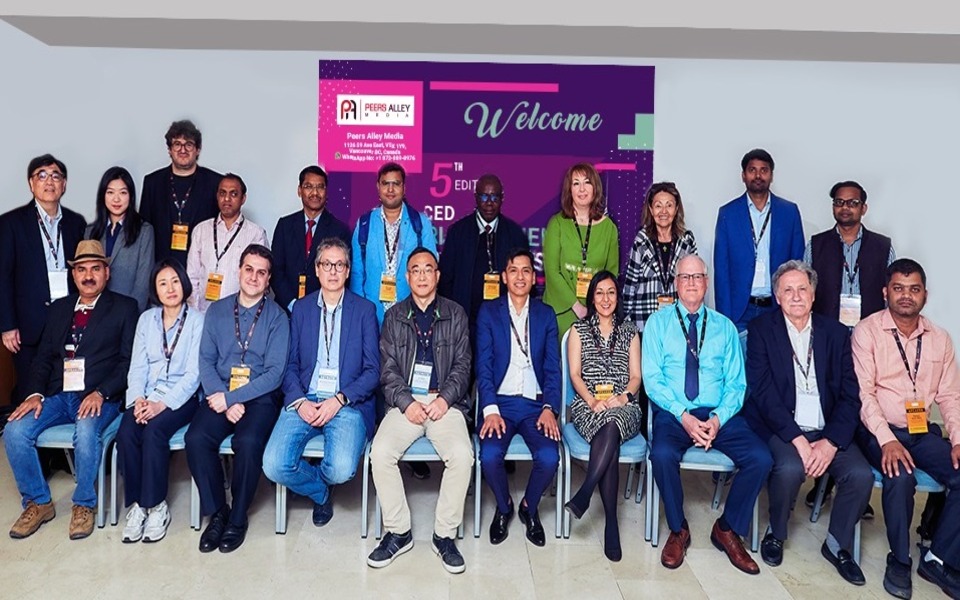
Euro-Global Materials 2023
Peers Alley Media,Canada

Primary goal of attending an international conference is to present a paper to the experts and influencers. It gives you a platform to exchange your interest-related thoughts, paving the way for possible future collaborations.

Use this platform to build connections with an elite group of wise men and women to enhance your intellect. Young entrepreneurs, this is a great platform to connect with your peers.

Knowledge is Power. Knowledge teaches skills. Skills define excellence. Use this platform to become cognizant of your interest area to achieve excellence in your domain.

Attending a conference give you opportunity to get your abstract or paper published in conference proceedings

Meet and greet a myriad of industry professionals and academia experts with common interest. Every meal will be an opportunity to meet and interact with fellow researchers, attendees and experts.

Expand your professional competency and learn useful tips and tricks of your industry in our skill-building workshops.

Explore insights on recent advancements, new equipment, new techniques, and unpublished data, learn from thought-leaders and get to network with a great line up of speakers.

Our exhibits floor offers the attendees with a dynamic display of the latest products with cutting-edge technology.

Investing in you is the best investment. Peers Alley conferences give the patrons with a feeling of the serendipity of real learning, skill development in strategic workshops, networking and start-up opportunities, thus, is value for money.

Attending the conference gives you much needed break from your regular duties. It also allows you to explore new cities, culture and meet new people. You will feel energized and rejuvenated to return to the university and continue with the job after attending the conference.
Conferences are vital forum for academic researchers and business leaders. "It involves multiple presentations, interactive breakout sessions, hands-on product demonstrations and unrivalled networking opportunities".
We have invited some of the world's most sought-after keynote speakers, experts, brand ambassadors, and industry leaders to share their thoughts and ideas with our conference guests.
Register Now
Dear Esteemed Guests and Participants,
On behalf of the organizing committee, it is our great pleasure to welcome you to the 3rd Premier Global Conclave and Expo on Innovations in Drug Discovery, Development & Delivery. We are delighted to have you join us for this premier event, where innovation, collaboration, and groundbreaking research converge to shape the future of healthcare.
In the ever-evolving landscape of pharmaceuticals and biotechnology, this congress serves as a vital platform for professionals from diverse fields to come together and exchange ideas, share insights, and forge new partnerships.
Over the course of the congress, you will have the opportunity to engage with leading experts through keynote presentations, panel discussions, workshops, and poster sessions. Our comprehensive program covers a wide array of topics, from artificial intelligence in drug discovery to cutting-edge advancements in gene editing, nanotechnology, and personalized medicine.
We are proud to host a diverse and distinguished group of speakers and participants, whose expertise and passion are driving the forefront of drug discovery, development, and delivery. This congress is not only a chance to gain insights from thought leaders but also an opportunity to network with peers, explore collaborative ventures, and stay abreast of the latest technological innovations and regulatory trends.
We extend our gratitude to our sponsors, partners, and exhibitors for their invaluable support and contributions, which have been instrumental in making this event possible. Their dedication to fostering scientific progress and supporting the global healthcare community is truly commendable.
As we embark on this journey of discovery and dialogue, we encourage you to make the most of the sessions, engage actively in discussions, and explore new perspectives. Together, we can pave the way for transformative advancements that will benefit patients worldwide.
Once again, welcome to the World Congress on Drug Discovery, Development, and Delivery. We look forward to a productive and inspiring congress with you.
Warm regards,
DRUG Conclave 2025
Organizing Committee
Peers Alley Media, 1126 59 Ave East, V5X 1Y9, Vancouver BC, Canada

Harvard Medical School, USA

Cleveland Diagnostics, USA

Antares Health Products Inc., East Tennessee State University, USA

University of Illinois, USA

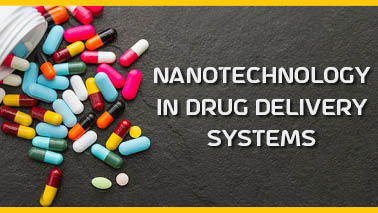
Nanotechnology in drug delivery systems involves the use of nanoscale materials and devices to improve the delivery of therapeutic agents. Nanotechnology enhances the efficacy, precision, and safety of drug delivery by leveraging the unique properties of materials at the nanometer scale (1-100 nanometers). Here are the key aspects and benefits of nanotechnology in drug delivery:
Key Aspects of Nanotechnology in Drug Delivery
Types of Nanocarriers
Mechanisms of Action
Methods of Delivery
Benefits of Nanotechnology in Drug Delivery
Challenges and Considerations
Applications in Medicine
Tags
Drug Discovery Conferences 2025 Europe
Herbal Medicine Conferences
Vaccines Meetings
Drug Delivery Conferences 2025 China
Drug Design Conferences
Nano Drug Delivery Conferences
Drug Discovery Conferences
Drug Development Conferences
Toxicology Conferences
Drug Discovery Conferences 2025 USA
Drug Discovery Conferences 2025
Drug Discovery Conferences 2025 Canada
Vaccines Development Conferences
Molecular Docking Conferences
Computational Drug Design Conferences
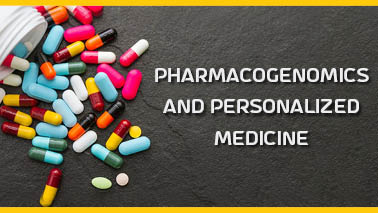
Pharmacogenomics is the study of how an individual's genetic makeup affects their response to drugs. This field combines pharmacology (the science of drugs) and genomics (the study of genes and their functions) to develop effective, safe medications and doses tailored to a person's genetic profile. The goal of pharmacogenomics is to optimize drug therapy, ensuring maximum efficacy with minimal adverse effects. Here are some key aspects:
Genetic Variability in Drug Response
Polymorphisms: Variations in genes that encode drug-metabolizing enzymes, drug transporters, and drug targets can significantly influence an individual's response to medications.
Enzyme Activity: Genetic differences can result in varying levels of enzyme activity, categorizing individuals as poor, intermediate, extensive, or ultra-rapid metabolizers of certain drugs.
Applications in Clinical Practice
Personalized Drug Prescribing: Pharmacogenomic testing can help physicians choose the right drug and dosage for patients based on their genetic profile.
Adverse Drug Reactions: By identifying genetic factors that predispose individuals to adverse drug reactions, healthcare providers can avoid prescribing harmful medications.
Examples of Pharmacogenomic Applications
Warfarin: Genetic testing for variants in the CYP2C9 and VKORC1 genes can guide dosing of this anticoagulant to minimize the risk of bleeding.
Clopidogrel: CYP2C19 genetic variants can affect the metabolism of this antiplatelet drug, influencing its effectiveness in preventing blood clots.
Oncology: Certain genetic markers can predict responses to cancer therapies, such as EGFR mutations in non-small cell lung cancer treated with tyrosine kinase inhibitors.
Personalized Medicine
Personalized medicine, also known as precision medicine, is a broader approach that uses an individual's genetic, environmental, and lifestyle information to tailor healthcare. This approach aims to provide more precise diagnoses, predict disease risk, and customize treatment plans for better outcomes. Key components of personalized medicine include:
Genomic Information
Whole Genome Sequencing: Comprehensive analysis of an individual's entire genetic code to identify variations associated with disease risk and drug response.
Gene Panels: Targeted sequencing of specific sets of genes known to be associated with certain conditions or treatment responses.
Environmental and Lifestyle Factors
Exposures: Considering environmental exposures, such as pollutants or occupational hazards, that can interact with genetic factors to influence health.
Behavioral Factors: Lifestyle choices, such as diet, exercise, and smoking, are integrated with genetic information to provide holistic healthcare recommendations.
Clinical Applications
Disease Prevention: Identifying individuals at high risk for certain diseases allows for early intervention and preventive measures.
Tailored Treatments: Developing treatment plans that are specifically designed for an individual's genetic and molecular profile, improving the chances of success.
Monitoring and Adjustments: Continuous monitoring of patients using advanced technologies, allowing for real-time adjustments to treatment plans based on how the patient responds.
Examples in Personalized Medicine
Cancer: Molecular profiling of tumors to identify specific mutations that can be targeted by tailored therapies, such as HER2-targeted treatments in breast cancer.
Cardiology: Using genetic information to guide the management of heart diseases, such as determining the most effective medications for managing cholesterol levels based on genetic variants.
Diabetes: Personalizing diet and medication plans based on genetic predispositions and individual metabolic responses.
Benefits of Pharmacogenomics and Personalized Medicine
Improved Efficacy: Tailoring treatments to the individual's genetic profile increases the likelihood of treatment success.
Reduced Adverse Effects: Personalized approaches help avoid medications that may cause harmful side effects in certain individuals.
Cost-Effectiveness: By targeting therapies more precisely, personalized medicine can reduce the overall cost of healthcare by minimizing trial-and-error prescribing and preventing adverse reactions.
Patient Empowerment: Personalized medicine encourages patients to engage more actively in their healthcare by providing them with information about their genetic risks and potential responses to treatments.
Challenges and Considerations
Ethical and Privacy Concerns
Protecting patient privacy and ensuring that genetic information is used ethically and responsibly is paramount.
Access and Equity
Ensuring that advances in personalized medicine are accessible to all individuals, regardless of socioeconomic status, is a significant challenge.
Complexity of Implementation
Integrating genetic information into clinical practice requires robust infrastructure, including advanced diagnostic tools and trained healthcare professionals.
Regulatory and Reimbursement Issues
Navigating regulatory approvals and securing reimbursement for personalized treatments can be complex and time-consuming
Tags
Novel Drug Delivery Conferences
Pharmacodynamics Conferences
Drug Discovery Conferences 2025
Rare Disease Conferences
Drug Delivery Conferences 2025 USA
Drug Discovery Conferences 2025 Middle East
Drug Delivery Conferences 2025 China
Herbal Medicine Conferences
Vaccines Development Conferences
Molecular Docking Conferences
Drug Development Conferences
Drug Discovery Conferences 2025 China
Pharmacokinetics Conferences
Drug Design Conferences
Clinical Trial Conferences
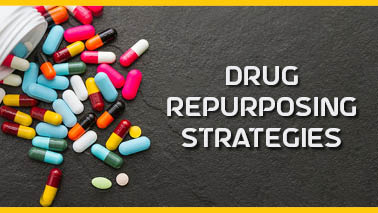
Drug repurposing, also known as drug repositioning, involves finding new therapeutic uses for existing drugs. This approach leverages the known pharmacokinetics, safety profiles, and manufacturing processes of existing drugs to accelerate the development of new therapies, often with lower costs and reduced risks compared to developing new drugs from scratch. Here are key strategies used in drug repurposing:
Strategies for Drug Repurposing
Computational Approaches:
Experimental Approaches:
Clinical Approaches:
Literature and Patent Mining:
Biological and Pharmacological Approaches:
Advantages of Drug Repurposing
Challenges in Drug Repurposing
Examples of Successful Drug Repurposing
Tags
Drug Safety Conferences
Drug Discovery Conferences 2025 Middle East
Pharmacokinetics Conferences
Drug Delivery Conferences 2025 Canada
Drug Delivery Conferences 2025 Middle East
Drug Development Conferences
Drug Discovery Conferences 2025 Asia
Pharmaceutical Manufacturing Conferences
Rare Disease Conferences
Clinical Trial Conferences
Drug Discovery Conferences 2025 USA
Pharmacodynamics Conferences
Drug Discovery Conferences 2025 Canada
Molecular Docking Conferences
Computational Drug Design Conferences
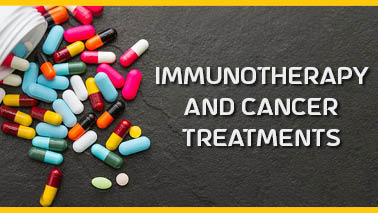
Immunotherapy is a type of cancer treatment that harnesses and enhances the body's immune system to fight cancer. Unlike traditional cancer treatments such as chemotherapy and radiation, which directly target cancer cells, immunotherapy aims to boost the body's natural defenses to identify and destroy cancer cells more effectively. Here’s an overview of immunotherapy and its role in cancer treatment:
Types of Immunotherapy for Cancer
CAR-T Cell Therapy:
Cancer Vaccines:
Monoclonal Antibodies:
Immune System Modulators:
Advantages of Immunotherapy
Challenges and Limitations
Current Research and Future Directions
Tags
Molecular Docking Conferences
Drug Discovery Conferences 2025 Middle East
Drug Discovery Conferences 2025 Canada
Novel Drug Delivery Conferences
Drug Delivery Conferences 2025 Middle East
Vaccines Development Conferences
Toxicology Conferences
Nano Drug Delivery Conferences
Computational Drug Design Conferences
Natural Products Conferences
Drug Discovery Conferences 2025 Asia
Drug Discovery Conferences 2025 Europe
Vaccines Meetings
Drug Delivery Conferences 2025 USA
Molecular Docking Conferences
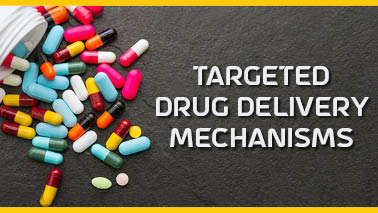
Targeted drug delivery refers to the methods used to deliver medications directly to specific cells or tissues, minimizing side effects and improving therapeutic efficacy. This approach is particularly valuable in cancer treatment, where it is crucial to target cancer cells while sparing healthy ones. Here’s an overview of the key mechanisms and strategies involved in targeted drug delivery:
Mechanisms of Targeted Drug Delivery
Ligand-Based Targeting:
Nanoparticles:
Prodrugs:
Smart Polymers:
Antibody-Drug Conjugates (ADCs):
Gene Therapy Vectors:
Cell-Based Delivery Systems:
Advantages of Targeted Drug Delivery
Challenges and Limitations
Current Research and Future Directions
Tags
Toxicology Conferences
Drug Delivery Conferences 2025
Drug Delivery Conferences 2025 China
Drug Delivery Conferences 2025 Middle East
Natural Products Conferences
Drug Delivery Conferences 2025 Europe
Pharmacodynamics Conferences
Drug Delivery Conferences 2025 USA
Drug Discovery Conferences 2025 Asia
Molecular Docking Conferences
Nano Drug Delivery Conferences
Herbal Medicine Conferences
Drug Discovery Conferences 2025
Drug Discovery Conferences 2025 Europe
Novel Drug Delivery Conferences
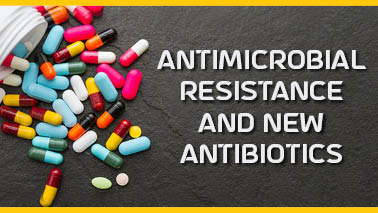
Antimicrobial resistance (AMR) is the ability of microorganisms (such as bacteria, viruses, fungi, and parasites) to resist the effects of drugs that once could successfully treat them. This resistance renders standard treatments ineffective, leading to persistent infections and an increased risk of spread to others. The rise of AMR poses a significant threat to public health globally.
Causes of Antimicrobial Resistance
Overuse and Misuse of Antibiotics:
Poor Infection Control:
Lack of New Antibiotics:
Impact of Antimicrobial Resistance
Strategies to Combat Antimicrobial Resistance
Infection Prevention and Control:
Surveillance and Monitoring:
Research and Development:
New Antibiotics and Alternative Approaches
Novel Antibiotics:
Enhanced Drug Development:
Antimicrobial Peptides:
Bacteriophage Therapy:
Immunotherapies:
Microbiome-Based Therapies:
Tags
Pharmacokinetics Conferences
Drug Delivery Conferences 2025 Europe
Drug Discovery Conferences 2025 Asia
Drug Delivery Conferences 2025 Canada
Vaccines Development Conferences
Drug Safety Conferences
Drug Discovery Conferences 2025 Europe
Clinical Trial Conferences
Drug Delivery Conferences 2025
Drug Delivery Conferences 2025 Asia
Drug Discovery Conferences 2025 USA
Rare Disease Conferences
Drug Discovery Conferences 2025 China
Drug Design Conferences
Drug Discovery Conferences 2025 Middle East
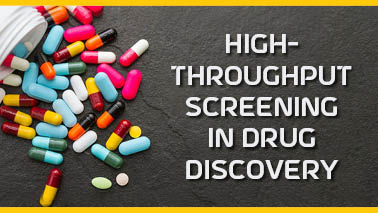
High-throughput screening (HTS) is a powerful method used in drug discovery to rapidly test large numbers of chemical compounds or biological agents for their activity against specific targets, such as enzymes, receptors, or cells. The goal of HTS is to identify potential drug candidates with desirable properties for further development. Here’s how HTS works and its role in drug discovery:
Process of High-Throughput Screening
Applications of High-Throughput Screening
Advantages of High-Throughput Screening
Challenges and Limitations
Tags
Nano Drug Delivery Conferences
Drug Discovery Conferences 2025 Middle East
Drug Delivery Conferences 2025
Toxicology Conferences
Vaccines Development Conferences
Drug Discovery Conferences 2025 Asia
Drug Delivery Conferences 2025 Asia
Drug Delivery Conferences 2025 USA
Drug Discovery Conferences 2025 Canada
Computational Drug Design Conferences
Novel Drug Delivery Conferences
Drug Discovery Conferences 2025 USA
Herbal Medicine Conferences
Molecular Docking Conferences
Drug Delivery Conferences 2025 China
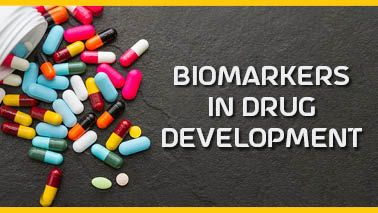
Biomarkers are measurable indicators of biological processes, disease states, or response to therapeutic interventions. In drug development, biomarkers play a crucial role in various stages of the process, from early preclinical research to clinical trials and post-market monitoring. Here’s how biomarkers are used in drug development:
Types of Biomarkers
Diagnostic Biomarkers:
Prognostic Biomarkers:
Predictive Biomarkers:
Surrogate Biomarkers:
Roles of Biomarkers in Drug Development
Challenges and Considerations
Future Directions
Tags
Drug Delivery Conferences 2025 Asia
Vaccines Development Conferences
Drug Delivery Conferences 2025 Middle East
Drug Discovery Conferences 2025 Middle East
Herbal Medicine Conferences
Drug Delivery Conferences 2025 Canada
Computational Drug Design Conferences
Drug Delivery Conferences 2025 China
Drug Delivery Conferences 2025 USA
Drug Discovery Conferences 2025 China
Drug Safety Conferences
Clinical Trial Conferences
Drug Discovery Conferences 2025 Europe
Toxicology Conferences
Drug Discovery Conferences 2025 Canada
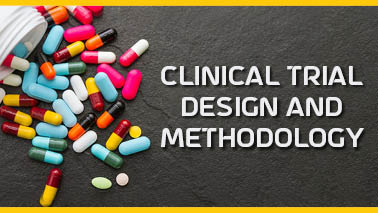
Clinical trial design and methodology refers to the planning, implementation, and execution of studies aimed at evaluating the safety, efficacy, and effectiveness of new medical interventions, such as drugs, medical devices, procedures, or behavioral interventions, in human subjects. The design and methodology of clinical trials are critical for generating reliable and valid data that can inform healthcare decision-making. Here’s an overview of clinical trial design and methodology:
Key Components of Clinical Trial Design
Types of Clinical Trials
Ethical Considerations
Challenges and Considerations
Emerging Trends
Tags
Drug Discovery Conferences 2025 China
Rare Disease Conferences
Molecular Docking Conferences
Computational Drug Design Conferences
Drug Delivery Conferences 2025 USA
Drug Design Conferences
Drug Delivery Conferences 2025 Middle East
Drug Delivery Conferences 2025
Pharmacodynamics Conferences
Nano Drug Delivery Conferences
Vaccines Development Conferences
Drug Discovery Conferences 2025 Asia
Drug Discovery Conferences 2025 Europe
Novel Drug Delivery Conferences
Herbal Medicine Conferences
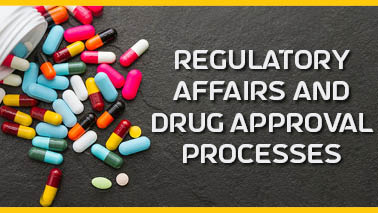
Regulatory affairs is a multidisciplinary field within the pharmaceutical industry that deals with the regulations, policies, and procedures governing the development, manufacture, marketing, and distribution of pharmaceutical products. Regulatory affairs professionals ensure compliance with applicable laws and regulations to obtain and maintain regulatory approval for drugs and medical devices. Here’s an overview of regulatory affairs and the drug approval process:
Role of Regulatory Affairs
Drug Approval Process
The drug approval process varies by country and region, but generally involves the following steps:
Regulatory Submissions and Pathways
International Harmonization
Tags
Rare Disease Conferences
Drug Delivery Conferences 2025 Asia
Pharmaceutical Manufacturing Conferences
Drug Delivery Conferences 2025 Europe
Toxicology Conferences
Drug Delivery Conferences 2025 China
Molecular Docking Conferences
Drug Delivery Conferences 2025 Canada
Drug Discovery Conferences 2025 Asia
Drug Safety Conferences
Drug Discovery Conferences 2025 Middle East
Pharmacovigilance Conferences
Nano Drug Delivery Conferences
Pharmacodynamics Conferences
Drug Discovery Conferences 2025 USA
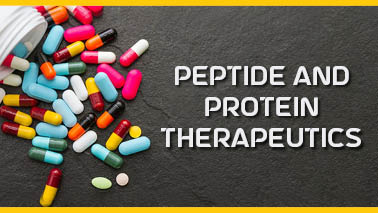
Peptide and protein therapeutics are a class of drugs composed of peptides (short chains of amino acids) or proteins (longer chains of amino acids) that are designed to interact with specific biological targets to treat diseases. Peptide and protein therapeutics have diverse applications in various therapeutic areas, including oncology, metabolic diseases, autoimmune disorders, and infectious diseases. Here’s an overview of peptide and protein therapeutics:
Peptide Therapeutics
Examples:
Examples:
Challenges
Future Directions
Tags
Rare Disease Conferences
Nano Drug Delivery Conferences
Drug Delivery Conferences 2025 China
Drug Discovery Conferences 2025 China
Pharmaceutical Manufacturing Conferences
Vaccines Development Conferences
Drug Safety Conferences
Drug Delivery Conferences 2025 Asia
Drug Discovery Conferences 2025 Europe
Drug Delivery Conferences 2025
Novel Drug Delivery Conferences
Drug Design Conferences
Computational Drug Design Conferences
Pharmacodynamics Conferences
Molecular Docking Conferences
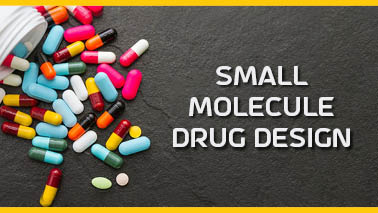
Small molecule drug design involves the development of therapeutic compounds that are relatively small in size and molecular weight, typically less than 900 Daltons. These molecules are designed to interact with specific targets in the body, such as proteins, enzymes, or receptors, to modulate biological processes and treat diseases. Small molecule drugs represent a significant portion of the pharmaceutical market and are widely used to treat a variety of conditions. Here's an overview of small molecule drug design:
Steps in Small Molecule Drug Design
Clinical Development:
Drug candidates that successfully complete preclinical testing progress to clinical trials, which consist of three phases:
Advantages of Small Molecule Drugs
Challenges and Limitations
Tags
Molecular Docking Conferences
Drug Delivery Conferences 2025 Europe
Drug Delivery Conferences 2025 USA
Clinical Trial Conferences
Toxicology Conferences
Pharmacodynamics Conferences
Vaccines Development Conferences
Herbal Medicine Conferences
Drug Delivery Conferences 2025 China
Pharmacokinetics Conferences
Drug Safety Conferences
Drug Development Conferences
Pharmaceutical Manufacturing Conferences
Drug Delivery Conferences 2025
Drug Discovery Conferences 2025
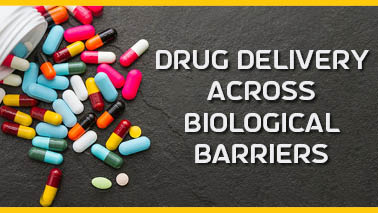
Drug delivery across biological barriers refers to the process of transporting therapeutic agents, such as drugs or biologics, across physiological barriers in the body to reach their target site of action. Biological barriers serve to protect and regulate the internal environment of the body, but they can also pose challenges for drug delivery by limiting the passage of molecules. Overcoming these barriers is crucial for ensuring effective drug delivery and therapeutic efficacy. Here's an overview of some common biological barriers and strategies for drug delivery across them:
Common Biological Barriers
Chemical Modification:
Challenges and Considerations
Future Directions
Tags
Drug Delivery Conferences 2025 Canada
Natural Products Conferences
Clinical Trial Conferences
Molecular Docking Conferences
Vaccines Development Conferences
Drug Discovery Conferences 2025
Drug Delivery Conferences 2025 Asia
Pharmacokinetics Conferences
Molecular Docking Conferences
Drug Discovery Conferences 2025 Middle East
Pharmacovigilance Conferences
Novel Drug Delivery Conferences
Nano Drug Delivery Conferences
Drug Safety Conferences
Drug Development Conferences
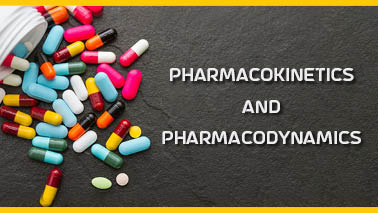
Pharmacokinetics (PK) and Pharmacodynamics (PD) are two essential aspects of pharmacology that describe the actions of drugs within the body. They encompass the absorption, distribution, metabolism, and excretion of drugs (PK) as well as the biochemical and physiological effects of drugs on the body (PD).
Pharmacokinetics (PK)
Pharmacodynamics (PD)
Pharmacokinetic-Pharmacodynamic (PK-PD) Modeling
PK-PD modeling integrates pharmacokinetic and pharmacodynamic principles to characterize the relationship between drug exposure (concentration-time profile) and pharmacological response. PK-PD models can help optimize drug dosing regimens, predict drug effects under different conditions, and understand the mechanisms of drug action and resistance.
Clinical Applications
Tags
Computational Drug Design Conferences
Toxicology Conferences
Drug Discovery Conferences 2025 USA
Drug Delivery Conferences 2025 Europe
Molecular Docking Conferences
Vaccines Meetings
Clinical Trial Conferences
Pharmacodynamics Conferences
Drug Delivery Conferences 2025
Molecular Docking Conferences
Drug Discovery Conferences 2025 Asia
Natural Products Conferences
Drug Discovery Conferences
Drug Discovery Conferences 2025 Europe
Pharmacokinetics Conferences

Natural products and herbal medicine encompass a wide range of substances derived from plants, animals, minerals, and microorganisms that have been used for medicinal purposes throughout history. These natural products contain bioactive compounds with therapeutic properties and have been employed in various traditional healing systems worldwide. Here's an overview of natural products and herbal medicine:
Natural Products
Herbal Medicine
Integrative Medicine and Complementary Therapies
Tags
Herbal Medicine Conferences
Molecular Docking Conferences
Drug Discovery Conferences 2025 USA
Rare Disease Conferences
Drug Discovery Conferences 2025 Europe
Toxicology Conferences
Natural Products Conferences
Drug Discovery Conferences
Drug Delivery Conferences 2025 Middle East
Drug Development Conferences
Drug Delivery Conferences 2025
Drug Delivery Conferences 2025 Canada
Pharmaceutical Manufacturing Conferences
Pharmacodynamics Conferences
Drug Safety Conferences
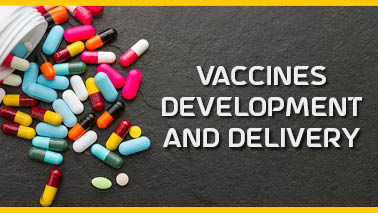
Vaccine development and delivery involve a multi-step process designed to create and distribute vaccines that effectively prevent infectious diseases. Vaccines stimulate the immune system to recognize and combat pathogens such as viruses and bacteria. Here's an overview of the stages involved in vaccine development and the various delivery mechanisms used to administer vaccines:
Stages of Vaccine Development
Clinical Development:
Regulatory Review and Approval:
Manufacturing and Quality Control
Injection
Oral Delivery
Novel Delivery Systems
Challenges in Vaccine Development and Delivery
Tags
Nano Drug Delivery Conferences
Drug Discovery Conferences 2025 Asia
Drug Discovery Conferences 2025 Canada
Pharmaceutical Manufacturing Conferences
Drug Delivery Conferences 2025 Asia
Drug Design Conferences
Drug Development Conferences
Drug Discovery Conferences 2025 Europe
Drug Discovery Conferences 2025 USA
Pharmacokinetics Conferences
Drug Delivery Conferences 2025 Canada
Vaccines Development Conferences
Toxicology Conferences
Drug Delivery Conferences 2025 Europe
Rare Disease Conferences
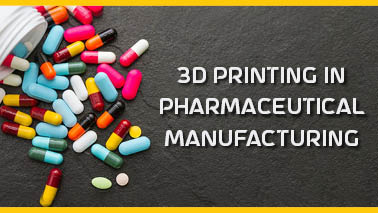
3D printing in pharmaceutical manufacturing is an innovative technology that involves creating three-dimensional solid objects from a digital file by layering materials. This process, also known as additive manufacturing, has significant potential in the pharmaceutical industry for producing customized drug products. Here are the key aspects and benefits of 3D printing in pharmaceutical manufacturing:
Customization:
Benefits
Patient-Specific Treatments:
Rapid Prototyping and Production:
Enhanced Research and Development:
Examples of Applications
Challenges and Considerations:
Tags
Pharmacovigilance Conferences
Drug Delivery Conferences 2025 Middle East
Drug Delivery Conferences 2025
Computational Drug Design Conferences
Drug Delivery Conferences 2025 Canada
Drug Discovery Conferences 2025 Europe
Molecular Docking Conferences
Drug Discovery Conferences 2025
Drug Delivery Conferences 2025 Asia
Drug Discovery Conferences 2025 Middle East
Drug Delivery Conferences 2025 China
Drug Discovery Conferences
Vaccines Meetings
Drug Discovery Conferences 2025 Canada
Toxicology Conferences
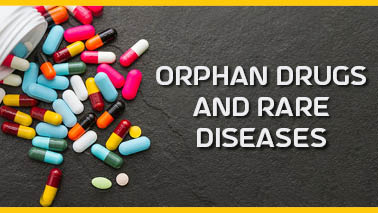
Orphan drugs and rare diseases are closely related concepts in the field of medicine and pharmaceuticals, aimed at addressing the needs of patients with uncommon medical conditions.
Rare Diseases
Definition: A rare disease is a medical condition that affects a small percentage of the population. In the United States, a disease is classified as rare if it affects fewer than 200,000 people at any given time. In the European Union, a disease is considered rare if it affects fewer than 1 in 2,000 people.
Characteristics:
Examples of Rare Diseases
Orphan Drugs
Definition: Orphan drugs are pharmaceutical agents developed specifically to treat, prevent, or diagnose rare diseases. The term "orphan" is used because historically, drug companies were reluctant to adopt these conditions for drug development due to the limited potential for profitability.
Legislation and Incentives:
To encourage the development of treatments for rare diseases, various countries have enacted orphan drug legislation that provides incentives to pharmaceutical companies. These incentives may include:
Examples of Orphan Drugs
Importance and Impact
Medical and Social Impact:
Economic and Developmental Impact:
Tags
Vaccines Development Conferences
Natural Products Conferences
Drug Delivery Conferences 2025
Drug Delivery Conferences 2025 Middle East
Drug Delivery Conferences 2025 USA
Rare Disease Conferences
Drug Discovery Conferences 2025 China
Drug Delivery Conferences 2025 Canada
Drug Development Conferences
Drug Discovery Conferences 2025
Drug Delivery Conferences 2025 China
Drug Discovery Conferences 2025 USA
Computational Drug Design Conferences
Pharmaceutical Manufacturing Conferences
Molecular Docking Conferences
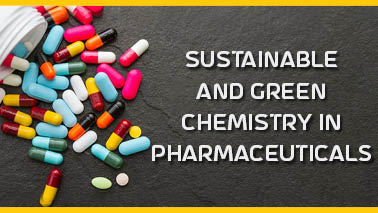
Sustainable and green chemistry in pharmaceuticals involves designing products and processes that reduce or eliminate the use and generation of hazardous substances. This approach aims to minimize the environmental and health impacts of pharmaceutical manufacturing and usage. Here's a detailed look at the concepts and practices involved:
Sustainable Chemistry
Definition: Sustainable chemistry focuses on developing chemical products and processes that are environmentally friendly, economically viable, and socially responsible. It emphasizes the use of renewable resources, energy efficiency, and the reduction of waste and hazardous materials.
Key Principles:
Green Chemistry
Definition: Green chemistry, a subset of sustainable chemistry, specifically focuses on designing chemical products and processes that reduce or eliminate the use and generation of hazardous substances. It aims to create safer products and processes, reduce energy consumption, and minimize waste.
Twelve Principles of Green Chemistry:
Applications in Pharmaceuticals
Green Synthesis of Active Pharmaceutical Ingredients (APIs):
Waste Reduction and Recycling:
Energy-Efficient Manufacturing:
Designing Safer Pharmaceuticals:
Benefits
Environmental Impact:
Economic Benefits:
Health and Safety:
Challenges
Initial Investment:
Regulatory Hurdles:
Technical Limitations:
Tags
Molecular Docking Conferences
Drug Discovery Conferences 2025 China
Drug Discovery Conferences
Vaccines Development Conferences
Pharmacovigilance Conferences
Drug Discovery Conferences 2025 USA
Drug Discovery Conferences 2025 Middle East
Rare Disease Conferences
Herbal Medicine Conferences
Drug Discovery Conferences 2025 Canada
Drug Delivery Conferences 2025
Drug Development Conferences
Drug Delivery Conferences 2025 USA
Drug Safety Conferences
Nano Drug Delivery Conferences
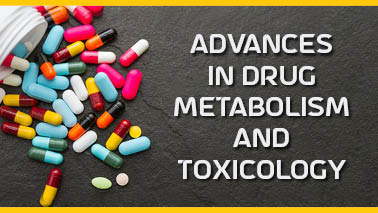
Advances in drug metabolism and toxicology are crucial for developing safer and more effective pharmaceuticals. These fields focus on understanding how drugs are processed in the body and their potential toxic effects. Recent advancements have been driven by innovative technologies and methodologies, improving drug development and personalized medicine. Here are some key areas of progress:
Drug Metabolism
Pharmacogenomics and Personalized Medicine:
Advanced Analytical Techniques:
In Vitro and In Silico Models:
Metabolomics:
Toxicology
Predictive Toxicology:
Biomarkers of Toxicity:
Alternative Testing Methods:
Regulatory Science and Safety Assessment:
Impact on Drug Development
Tags
Drug Discovery Conferences 2025 China
Drug Delivery Conferences 2025 Canada
Drug Discovery Conferences 2025 Canada
Drug Design Conferences
Novel Drug Delivery Conferences
Vaccines Development Conferences
Rare Disease Conferences
Drug Development Conferences
Molecular Docking Conferences
Drug Delivery Conferences 2025 Middle East
Toxicology Conferences
Drug Discovery Conferences 2025
Vaccines Meetings
Pharmaceutical Manufacturing Conferences
Drug Discovery Conferences
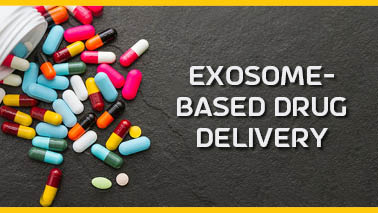
Exosome-based drug delivery is an emerging and innovative approach in the field of medicine and pharmaceuticals, utilizing exosomes as natural carriers for therapeutic agents. Exosomes are small, membrane-bound extracellular vesicles (30-150 nm in diameter) secreted by various cell types. They play a crucial role in intercellular communication by transferring proteins, lipids, and genetic material between cells. Leveraging these natural vehicles for drug delivery offers several advantages and is a promising area of research and development.
Key Features of Exosomes
Applications in Drug Delivery
Cancer Therapy:
Gene Therapy:
Neurological Disorders:
Regenerative Medicine:
Advantages
Challenges
Tags
Vaccines Meetings
Computational Drug Design Conferences
Drug Discovery Conferences 2025 Europe
Clinical Trial Conferences
Pharmacodynamics Conferences
Rare Disease Conferences
Vaccines Development Conferences
Drug Delivery Conferences 2025 Canada
Drug Discovery Conferences
Drug Discovery Conferences 2025 Canada
Drug Delivery Conferences 2025
Novel Drug Delivery Conferences
Pharmaceutical Manufacturing Conferences
Drug Safety Conferences
Drug Delivery Conferences 2025 China
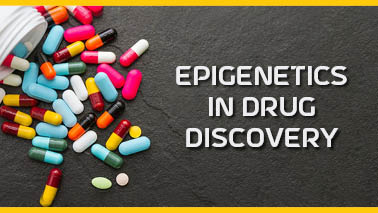
Epigenetics in drug discovery is a rapidly evolving field that focuses on understanding and manipulating the epigenetic mechanisms that regulate gene expression without altering the DNA sequence. Epigenetic modifications, such as DNA methylation, histone modification, and non-coding RNA-associated gene silencing, play a crucial role in regulating cellular processes and can contribute to the development of diseases, including cancer, neurological disorders, and autoimmune diseases. Targeting these epigenetic changes offers new therapeutic opportunities.
Key Concepts in Epigenetics
DNA Methylation:
Histone Modifications:
Non-Coding RNAs:
Applications in Drug Discovery
Cancer Therapy:
Neurological Disorders:
Autoimmune Diseases:
Cardiovascular Diseases:
Epigenetic Drug Classes
DNMT Inhibitors:
HDAC Inhibitors:
Bromodomain and Extra-Terminal Motif (BET) Inhibitors:
Histone Methyltransferase (HMT) and Histone Demethylase (HDM) Inhibitors:
Advantages of Epigenetic Therapies
Reversibility: Unlike genetic mutations, epigenetic modifications are reversible, making it possible to restore normal gene function.
Target Specificity: Epigenetic drugs can be designed to specifically target abnormal modifications associated with diseases, potentially reducing side effects.
Combination Therapies: Epigenetic drugs can be combined with other treatments (e.g., chemotherapy, immunotherapy) to enhance therapeutic efficacy.
Challenges
Tags
Pharmacodynamics Conferences
Drug Discovery Conferences 2025 China
Computational Drug Design Conferences
Molecular Docking Conferences
Drug Discovery Conferences
Natural Products Conferences
Drug Delivery Conferences 2025 Canada
Drug Safety Conferences
Pharmacovigilance Conferences
Drug Delivery Conferences 2025 USA
Molecular Docking Conferences
Drug Delivery Conferences 2025
Vaccines Development Conferences
Drug Design Conferences
Pharmaceutical Manufacturing Conferences
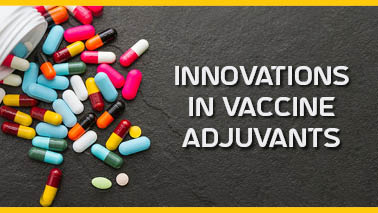
Vaccine adjuvants are substances added to vaccines to enhance the immune response and improve vaccine efficacy. Innovations in vaccine adjuvants aim to overcome limitations of traditional adjuvants, such as reactogenicity, manufacturing challenges, and the need for multiple doses. These innovations seek to optimize vaccine formulations for improved immunogenicity, safety, and scalability. Here are some notable innovations in vaccine adjuvants:
Nanoparticle-Based Adjuvants:
Toll-Like Receptor (TLR) Agonists:
Microneedle Patch Vaccines:
RNA-Based Adjuvants:
Combination Adjuvants:
Biomimetic Adjuvants:
Computational Design and Rational Design Approaches:
Tags
Computational Drug Design Conferences
Rare Disease Conferences
Vaccines Development Conferences
Drug Delivery Conferences 2025 China
Novel Drug Delivery Conferences
Natural Products Conferences
Drug Delivery Conferences 2025
Vaccines Meetings
Pharmacodynamics Conferences
Drug Development Conferences
Drug Delivery Conferences 2025 Middle East
Drug Discovery Conferences
Drug Safety Conferences
Herbal Medicine Conferences
Drug Discovery Conferences 2025 Canada
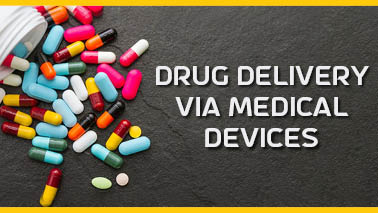
Drug delivery via medical devices involves the administration of therapeutic agents through specialized devices designed to deliver drugs to specific target sites in the body. These devices can range from simple to complex, and they offer precise control over the dosage, timing, and delivery location of medications. Here are some common examples of drug delivery via medical devices:
Implantable Drug Delivery Systems:
Inhalation Devices:
Transdermal Drug Delivery Systems:
Infusion Pumps:
Intravitreal Drug Delivery Devices:
Intrathecal Drug Delivery Systems:
Ocular Drug Delivery Devices:
Tags
Drug Delivery Conferences 2025 Asia
Drug Discovery Conferences 2025 Europe
Natural Products Conferences
Drug Delivery Conferences 2025 Middle East
Drug Discovery Conferences 2025
Drug Delivery Conferences 2025 China
Drug Delivery Conferences 2025 Europe
Herbal Medicine Conferences
Pharmacokinetics Conferences
Computational Drug Design Conferences
Toxicology Conferences
Novel Drug Delivery Conferences
Nano Drug Delivery Conferences
Clinical Trial Conferences
Molecular Docking Conferences
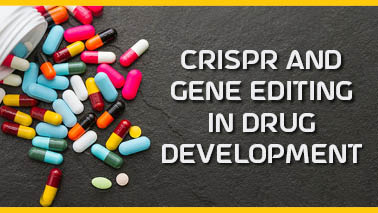
CRISPR (Clustered Regularly Interspaced Short Palindromic Repeats) is a revolutionary technology for gene editing, which allows scientists to make precise changes to the DNA of organisms. In the context of drug development, CRISPR and gene editing offer significant potential for creating new therapies, improving existing treatments, and understanding the genetic basis of diseases. Here's an overview of how CRISPR and gene editing are applied in drug development:
Understanding Disease Mechanisms
Functional Genomics: CRISPR can be used to knock out, activate, or modify specific genes in cells or animal models to study their function and understand how genetic variations contribute to diseases.
Gene-Drug Interaction Studies: By editing genes involved in drug metabolism or response, researchers can better understand how genetic differences affect drug efficacy and toxicity.
Target Identification and Validation
High-Throughput Screening: CRISPR libraries can be used to perform genome-wide screens to identify genes that, when altered, affect cell survival, proliferation, or other disease-relevant phenotypes.
Gene Function Studies: By precisely editing genes in disease models, researchers can validate potential drug targets and understand their roles in disease pathways.
Developing Gene Therapies
Direct Gene Editing: CRISPR can be used to correct genetic mutations directly in patients' cells, offering potential cures for genetic disorders such as cystic fibrosis, muscular dystrophy, and sickle cell disease.
Ex Vivo Gene Therapy: Patient cells are edited outside the body and then reintroduced. This approach is being used in treatments for blood disorders like beta-thalassemia and certain cancers.
Creating Better Disease Models
Animal Models: CRISPR allows the creation of precise animal models that mimic human diseases more accurately, which are crucial for studying disease progression and testing new drugs.
Cellular Models: Human cells can be edited to create disease-relevant models, such as induced pluripotent stem cells (iPSCs) with specific genetic mutations, which can be used for drug screening and toxicity testing.
Enhancing Drug Development
Synthetic Lethality Screens: CRISPR can identify gene pairs where the simultaneous loss of both genes is lethal to cells. This is useful for developing targeted cancer therapies that exploit synthetic lethality.
Drug Resistance Studies: By generating drug-resistant mutations, researchers can understand mechanisms of resistance and develop strategies to overcome or prevent it.
Personalized Medicine
Patient-Specific Treatments: CRISPR can tailor treatments based on a patient’s genetic makeup, leading to more effective and personalized therapeutic strategies.
Biomarker Discovery: Gene editing can help identify genetic biomarkers that predict a patient’s response to a particular drug, aiding in the customization of treatments.
Benefits of CRISPR and Gene Editing in Drug Development
Precision: Allows for highly specific targeting of genetic sequences, minimizing off-target effects.
Speed: Accelerates the process of creating disease models and identifying drug targets.
Versatility: Applicable to a wide range of diseases and therapeutic areas.
Cost-Effectiveness: Reduces the time and resources needed for drug discovery and development.
Challenges
Off-Target Effects: Ensuring that CRISPR edits only the intended sites without affecting other parts of the genome is crucial for safety.
Delivery: Efficiently delivering CRISPR components to the target cells in patients remains a significant challenge.
Ethical Considerations: The ability to edit human genes raises ethical issues, particularly concerning germline editing (changes that can be inherited by future generations).
Regulation: Navigating regulatory pathways for gene-edited therapies is complex and requires demonstrating safety and efficacy.
Tags
Computational Drug Design Conferences
Vaccines Development Conferences
Drug Delivery Conferences 2025
Drug Safety Conferences
Drug Discovery Conferences 2025 USA
Drug Discovery Conferences 2025 Europe
Clinical Trial Conferences
Drug Discovery Conferences 2025 Middle East
Toxicology Conferences
Pharmacodynamics Conferences
Drug Delivery Conferences 2025 Europe
Drug Delivery Conferences 2025 USA
Drug Discovery Conferences 2025
Drug Discovery Conferences 2025 China
Drug Delivery Conferences 2025 Canada
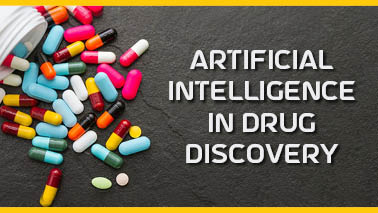
Artificial Intelligence (AI) in drug discovery refers to the application of AI technologies, such as machine learning (ML), deep learning, and natural language processing (NLP), to various stages of the drug development process. This integration aims to enhance the efficiency, accuracy, and speed of discovering new drugs and bringing them to market. Here are some key areas where AI is utilized in drug discovery:
Target Identification
Drug Design and Optimization
Virtual Screening
De novo Drug Design
Biomarker Discovery
Benefits of AI in Drug Discovery
Challenges
Tags
Drug Development Conferences
Drug Delivery Conferences 2025 Asia
Drug Discovery Conferences
Natural Products Conferences
Clinical Trial Conferences
Drug Delivery Conferences 2025 Canada
Drug Discovery Conferences 2025 Canada
Rare Disease Conferences
Herbal Medicine Conferences
Drug Discovery Conferences 2025
Novel Drug Delivery Conferences
Drug Safety Conferences
Molecular Docking Conferences
Drug Delivery Conferences 2025 Middle East
Pharmacokinetics Conferences
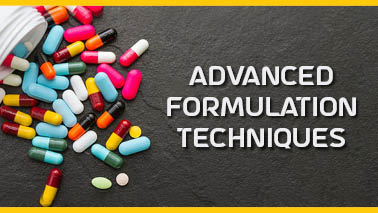
Advanced Formulation Techniques (AFT) refer to the sophisticated methods and technologies used in the development and production of pharmaceutical, cosmetic, and food products. These techniques aim to improve the efficacy, stability, delivery, and overall performance of active ingredients. AFT is crucial in various industries for creating innovative and effective products that meet specific consumer needs and regulatory requirements.
Here are some key aspects and examples of Advanced Formulation Techniques:
Tags
Natural Products Conferences
Drug Delivery Conferences 2025 Europe
Vaccines Meetings
Vaccines Development Conferences
Computational Drug Design Conferences
Pharmacokinetics Conferences
Clinical Trial Conferences
Drug Delivery Conferences 2025 Middle East
Herbal Medicine Conferences
Drug Discovery Conferences 2025 Europe
Drug Delivery Conferences 2025 USA
Nano Drug Delivery Conferences
Drug Discovery Conferences 2025 Middle East
Drug Delivery Conferences 2025 China
Pharmaceutical Manufacturing Conferences
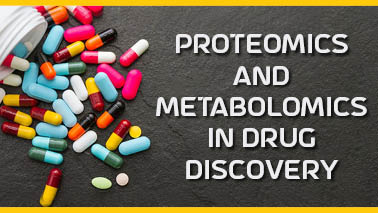
Proteomics and metabolomics are two important fields of study in systems biology that play crucial roles in drug discovery. They provide comprehensive insights into the molecular mechanisms of diseases and the effects of drugs, enabling the identification of new therapeutic targets and biomarkers.
Proteomics in Drug Discovery
Proteomics is the large-scale study of proteins, their structures, functions, and interactions. It involves the systematic analysis of the entire protein complement (proteome) of a cell, tissue, or organism.
Role in Drug Discovery:
Metabolomics in Drug Discovery
Metabolomics is the comprehensive study of metabolites, the small molecule intermediates and products of metabolism within a biological system. It aims to measure and analyze the dynamic changes in the metabolome under different physiological conditions.
Role in Drug Discovery:
Drug Mechanism of Action:
Metabolomic studies can reveal how drugs alter metabolic pathways, providing a better understanding of their mechanisms of action and potential off-target effects.
Integration of Proteomics and Metabolomics
The integration of proteomics and metabolomics provides a holistic view of the molecular changes occurring in response to disease and drug treatment. This systems biology approach allows for:
Tags
Drug Discovery Conferences 2025 China
Pharmacokinetics Conferences
Vaccines Meetings
Drug Discovery Conferences 2025 Europe
Drug Delivery Conferences 2025 Canada
Drug Delivery Conferences 2025 Europe
Herbal Medicine Conferences
Pharmacovigilance Conferences
Drug Delivery Conferences 2025
Pharmaceutical Manufacturing Conferences
Molecular Docking Conferences
Drug Delivery Conferences 2025 Asia
Clinical Trial Conferences
Drug Discovery Conferences 2025 Canada
Molecular Docking Conferences
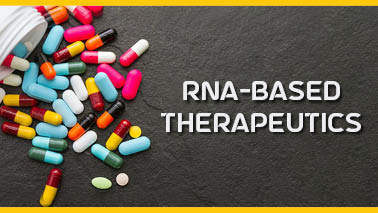
RNA-based therapeutics are a class of medical treatments that use various forms of RNA (ribonucleic acid) to treat diseases. These therapies can modulate gene expression, correct genetic mutations, or target specific proteins, offering new approaches to treating a wide range of diseases, including genetic disorders, cancers, and infectious diseases.
Types of RNA-Based Therapeutics
Messenger RNA (mRNA) Therapies:
Small Interfering RNA (siRNA) Therapies:
MicroRNA (miRNA) Therapies:
Antisense Oligonucleotides (ASOs):
Aptamers:
CRISPR/Cas Systems:
Advantages of RNA-Based Therapeutics
Challenges and Considerations
Tags
Pharmacovigilance Conferences
Drug Discovery Conferences 2025 Middle East
Drug Discovery Conferences 2025
Natural Products Conferences
Drug Discovery Conferences 2025 Asia
Vaccines Meetings
Drug Safety Conferences
Drug Delivery Conferences 2025 Asia
Drug Discovery Conferences
Pharmacodynamics Conferences
Rare Disease Conferences
Drug Discovery Conferences 2025 Canada
Clinical Trial Conferences
Drug Delivery Conferences 2025 Europe
Drug Design Conferences
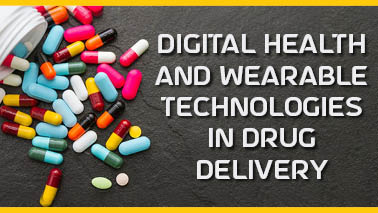
Digital health and wearable technologies are revolutionizing the landscape of drug delivery and healthcare by integrating advanced technology with traditional medical practices. These innovations aim to improve patient outcomes, enhance medication adherence, provide real-time health monitoring, and enable personalized medicine.
Digital Health in Drug Delivery
Key Aspects:
Mobile Health (mHealth):
Health Information Technology (Health IT):
Telemedicine:
Personalized Medicine:
Wearable Technologies in Drug Delivery
Key Applications:
Health Monitoring:
Smart Drug Delivery Systems:
Biosensors and Biometric Devices:
Integrated Systems:
Advantages of Digital Health and Wearable Technologies
Challenges and Considerations
Tags
Drug Discovery Conferences 2025 Middle East
Clinical Trial Conferences
Drug Delivery Conferences 2025 Canada
Drug Development Conferences
Vaccines Meetings
Drug Discovery Conferences 2025 China
Drug Discovery Conferences 2025 USA
Drug Discovery Conferences 2025 Asia
Nano Drug Delivery Conferences
Drug Design Conferences
Drug Discovery Conferences
Pharmacodynamics Conferences
Pharmacokinetics Conferences
Herbal Medicine Conferences
Drug Delivery Conferences 2025 Asia
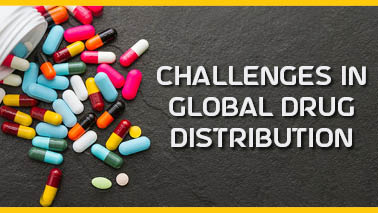
Global drug distribution faces numerous challenges that span logistical, regulatory, economic, and infrastructural domains. These challenges can impede the timely and efficient delivery of pharmaceutical products to patients worldwide. Here are some key hurdles:
Logistical Challenges:
Regulatory Challenges:
Supply Chain Vulnerabilities:
Infrastructure and Technology Gaps:
Economic Challenges:
Quality Assurance and Compliance:
Emergency Preparedness and Response:
Tags
Drug Delivery Conferences 2025 Asia
Molecular Docking Conferences
Vaccines Development Conferences
Drug Discovery Conferences 2025 USA
Natural Products Conferences
Vaccines Meetings
Drug Delivery Conferences 2025 China
Herbal Medicine Conferences
Nano Drug Delivery Conferences
Drug Delivery Conferences 2025 Canada
Drug Discovery Conferences 2025 Middle East
Drug Discovery Conferences 2025 Europe
Drug Discovery Conferences 2025 Asia
Pharmacodynamics Conferences
Molecular Docking Conferences
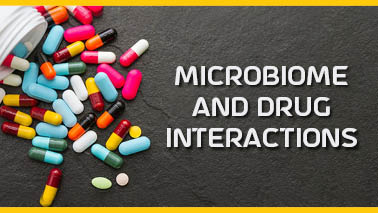
The microbiome refers to the collection of microorganisms, including bacteria, viruses, fungi, and other microbes, that inhabit various parts of the human body, such as the gut, skin, and oral cavity. These microorganisms play crucial roles in human health, including digestion, metabolism, immune function, and protection against pathogens.
Microbiome-Drug Interactions
Metabolism of Drugs:
Drug Biotransformation:
Impact on Drug Absorption:
Immune Modulation:
Drug-Induced Dysbiosis:
Secondary Effects on Health:
Clinical Implications
Personalized Medicine:
Optimizing Drug Efficacy and Safety:
Development of Microbiome-Based Therapies:
Monitoring and Management of Drug-Induced Dysbiosis:
Tags
Pharmacovigilance Conferences
Drug Delivery Conferences 2025 China
Molecular Docking Conferences
Drug Discovery Conferences
Herbal Medicine Conferences
Drug Development Conferences
Drug Discovery Conferences 2025 Middle East
Nano Drug Delivery Conferences
Drug Delivery Conferences 2025
Drug Delivery Conferences 2025 Europe
Pharmacodynamics Conferences
Drug Discovery Conferences 2025 Canada
Drug Discovery Conferences 2025 Europe
Novel Drug Delivery Conferences
Drug Discovery Conferences 2025 China
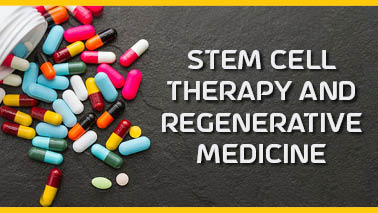
Stem cell therapy and regenerative medicine are cutting-edge fields that harness the regenerative potential of stem cells to repair, replace, or regenerate damaged tissues and organs in the body. These innovative approaches hold promise for treating a wide range of diseases and injuries, offering potential solutions where conventional treatments fall short.
Stem Cell Therapy
Key Aspects:
Regenerative Medicine
Key Aspects:
Clinical Applications
Challenges and Future Directions
Tags
Vaccines Development Conferences
Novel Drug Delivery Conferences
Drug Delivery Conferences 2025
Molecular Docking Conferences
Drug Discovery Conferences 2025 Asia
Drug Discovery Conferences 2025 Canada
Drug Safety Conferences
Vaccines Meetings
Drug Delivery Conferences 2025 China
Drug Discovery Conferences 2025
Pharmacovigilance Conferences
Drug Development Conferences
Drug Discovery Conferences 2025 Middle East
Drug Discovery Conferences 2025 Europe
Drug Discovery Conferences 2025 USA
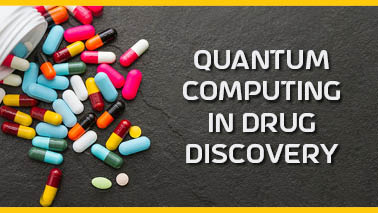
Quantum computing has the potential to revolutionize drug discovery by significantly accelerating the process of molecular modeling, simulation, and optimization. Unlike classical computers, which use binary bits to process information (0s and 1s), quantum computers utilize quantum bits or qubits, which can exist in superposition states and exhibit entanglement, allowing them to perform complex calculations much faster than classical computers for certain types of problems.
Key Applications of Quantum Computing in Drug Discovery
Molecular Simulation and Docking:
Drug Design and Optimization:
Quantum Machine Learning:
Quantum Chemistry Simulations:
Challenges and Considerations
Tags
Toxicology Conferences
Drug Delivery Conferences 2025 Europe
Computational Drug Design Conferences
Rare Disease Conferences
Novel Drug Delivery Conferences
Molecular Docking Conferences
Drug Design Conferences
Pharmacodynamics Conferences
Drug Discovery Conferences 2025 USA
Drug Discovery Conferences
Pharmacokinetics Conferences
Drug Discovery Conferences 2025 Middle East
Drug Discovery Conferences 2025
Clinical Trial Conferences
Herbal Medicine Conferences
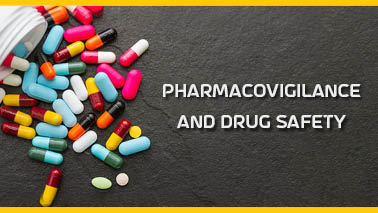
Pharmacovigilance is the science and activities related to the detection, assessment, understanding, and prevention of adverse effects or any other drug-related problems associated with pharmaceutical products. It plays a crucial role in ensuring the safety and efficacy of drugs throughout their lifecycle, from preclinical development to post-market surveillance. Here's an overview of pharmacovigilance and drug safety:
Key Components of Pharmacovigilance:
Adverse Drug Reaction (ADR) Reporting:
Signal Detection and Evaluation:
Risk Assessment and Benefit-Risk Evaluation:
Post-Marketing Surveillance:
Risk Management and Risk Minimization Strategies:
Communication and Collaboration:
Importance of Pharmacovigilance:
Tags
Rare Disease Conferences
Drug Discovery Conferences 2025 USA
Herbal Medicine Conferences
Pharmacovigilance Conferences
Novel Drug Delivery Conferences
Drug Discovery Conferences
Drug Discovery Conferences 2025 Canada
Molecular Docking Conferences
Drug Discovery Conferences 2025 Europe
Drug Design Conferences
Drug Discovery Conferences 2025 Middle East
Computational Drug Design Conferences
Toxicology Conferences
Pharmaceutical Manufacturing Conferences
Drug Delivery Conferences 2025 China
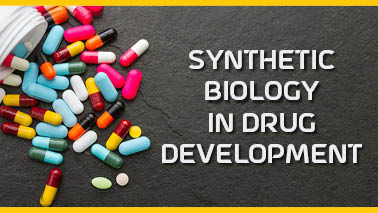
Synthetic biology is an interdisciplinary field that combines principles from biology, engineering, computer science, and other disciplines to design and engineer biological systems with novel functionalities. In drug development, synthetic biology offers innovative approaches for the discovery, production, and optimization of therapeutic agents. Here's how synthetic biology is applied in drug development:
Drug Discovery
Engineered Microbial Systems:
Genome Editing and Protein Engineering:
Cell-Free Systems:
Drug Production and Manufacturing
Synthetic Biology Platforms:
Bioprocess Optimization:
Drug Delivery and Targeting
Engineered Drug Delivery Systems:
Genetically Encoded Sensors and Actuators:
Challenges and Future Directions
Complexity and Predictability:
Safety and Regulatory Considerations
Interdisciplinary Collaboration:
Tags
Drug Discovery Conferences
Natural Products Conferences
Rare Disease Conferences
Pharmacodynamics Conferences
Clinical Trial Conferences
Drug Delivery Conferences 2025 China
Pharmaceutical Manufacturing Conferences
Molecular Docking Conferences
Pharmacovigilance Conferences
Drug Discovery Conferences 2025 USA
Pharmacokinetics Conferences
Drug Safety Conferences
Drug Delivery Conferences 2025 Canada
Drug Delivery Conferences 2025 USA
Computational Drug Design Conferences

Radiopharmaceuticals are medicinal formulations containing radioactive isotopes (radionuclides) that emit radiation, used for diagnostic or therapeutic purposes in nuclear medicine. These radioactive compounds are designed to selectively target specific tissues, organs, or physiological processes within the body, allowing for the visualization, characterization, and treatment of various medical conditions. Here's an overview of radiopharmaceuticals:
Diagnostic Radiopharmaceuticals
Imaging Agents:
Functional Imaging:
Targeted Imaging:
Therapeutic Radiopharmaceuticals
Radionuclide Therapy:
Radiosensitizers and Radioimmunotherapy:
Production and Administration:
Radioisotope Production:
Radiopharmaceutical Formulations:
Safety and Regulatory Considerations
Radiation Safety:
Regulatory Oversight:
Future Directions
Theranostics:
Targeted Radiopharmaceuticals:
Tags
Drug Design Conferences
Drug Delivery Conferences 2025 Middle East
Computational Drug Design Conferences
Toxicology Conferences
Drug Delivery Conferences 2025 Canada
Drug Delivery Conferences 2025 China
Pharmacokinetics Conferences
Drug Discovery Conferences 2025 Canada
Molecular Docking Conferences
Drug Discovery Conferences 2025 China
Novel Drug Delivery Conferences
Drug Delivery Conferences 2025
Drug Discovery Conferences 2025 USA
Natural Products Conferences
Rare Disease Conferences
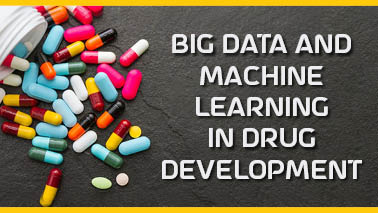
Big data and machine learning are revolutionizing drug development by enabling the analysis of large, complex datasets to extract insights, identify patterns, and make predictions related to drug discovery, development, and clinical research. Here's how big data and machine learning are being applied in various aspects of drug development:
Drug Discovery
Data Mining and Knowledge Discovery:
Virtual Screening and Compound Design:
De Novo Drug Design:
Preclinical and Clinical Development
Predictive Modeling and Toxicity Assessment:
Patient Stratification and Biomarker Discovery:
Real-World Evidence and Post-Market Surveillance:
Drug Repurposing and Combination Therapy
Data Integration and Network Analysis:
Challenges and Considerations
Data Quality and Integration:
Interpretability and Validation:
Ethical and Regulatory Considerations:
Tags
Molecular Docking Conferences
Computational Drug Design Conferences
Drug Discovery Conferences 2025 USA
Drug Safety Conferences
Vaccines Meetings
Pharmacokinetics Conferences
Drug Delivery Conferences 2025 Europe
Nano Drug Delivery Conferences
Pharmacovigilance Conferences
Herbal Medicine Conferences
Natural Products Conferences
Drug Discovery Conferences 2025
Pharmaceutical Manufacturing Conferences
Drug Discovery Conferences 2025 China
Toxicology Conferences
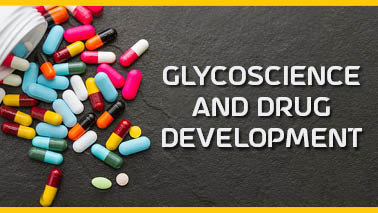
Glycoscience is the study of carbohydrates (glycans) and their roles in biological systems, including their structures, functions, interactions, and molecular mechanisms. In drug development, glycoscience plays a significant role in understanding the roles of glycans in health and disease, as well as in the design and optimization of therapeutic agents targeting glycan-related pathways. Here's how glycoscience intersects with drug development:
Glycan Function and Biology
Cell-Cell Recognition and Adhesion:
Protein Glycosylation:
Glycan-Drug Interactions:
Glycan-Based Therapeutics
Glycan Mimetics and Glycomimetics:
Glycosyltransferase Inhibitors:
Glycan-Targeted Immunotherapy:
Glycan Biomarkers and Diagnostics
Glycan Profiling and Glycomics:
Glycan Imaging and Molecular Imaging:
Challenges and Future Directions
Structural Complexity and Diversity:
Target Identification and Validation:
Therapeutic Delivery and Targeting:
Regulatory Approval and Translation:
Tags
Nano Drug Delivery Conferences
Drug Delivery Conferences 2025 Europe
Drug Delivery Conferences 2025 Canada
Herbal Medicine Conferences
Drug Discovery Conferences 2025 Middle East
Vaccines Meetings
Drug Delivery Conferences 2025 Middle East
Drug Discovery Conferences 2025 USA
Pharmacovigilance Conferences
Pharmaceutical Manufacturing Conferences
Drug Discovery Conferences 2025
Vaccines Development Conferences
Drug Discovery Conferences 2025 Asia
Computational Drug Design Conferences
Molecular Docking Conferences
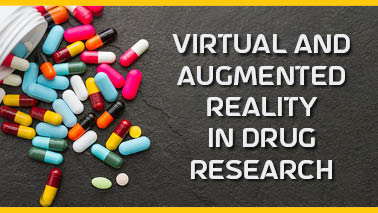
Virtual reality (VR) and augmented reality (AR) technologies are transforming drug research and development by providing immersive, interactive, and visualization tools for drug discovery, design, and testing. Here's how virtual and augmented reality are being applied in various aspects of drug research:
Drug Discovery and Molecular Modeling:
Molecular Visualization:
Protein Docking and Molecular Dynamics:
Drug Design and Optimization
Interactive Drug Design:
Structure-Based Design:
Pharmacokinetics and Pharmacodynamics
Drug Distribution and Metabolism:
Pharmacodynamic Modeling:
Education and Training
Virtual Laboratories and Simulations:
Medical Visualization and Patient Education:
Challenges and Considerations
Technical Complexity and Accessibility:
Validation and Integration with Traditional Methods:
Ethical and Regulatory Considerations:
Tags
Rare Disease Conferences
Drug Discovery Conferences 2025
Novel Drug Delivery Conferences
Drug Safety Conferences
Pharmacokinetics Conferences
Drug Delivery Conferences 2025
Drug Delivery Conferences 2025 China
Drug Design Conferences
Vaccines Meetings
Drug Discovery Conferences 2025 Europe
Drug Discovery Conferences 2025 USA
Molecular Docking Conferences
Drug Discovery Conferences 2025 Canada
Drug Development Conferences
Pharmacodynamics Conferences

Hormone-based therapies are medical treatments that involve the use of hormones or hormone-modulating agents to modify hormonal balance, signaling pathways, or physiological responses in the body. These therapies are used to manage a wide range of medical conditions, including hormonal disorders, reproductive health issues, and hormone-sensitive cancers. Here's an overview of hormone-based therapies and their applications:
Menopausal Hormone Therapy:
Androgen Replacement Therapy:
Contraceptive Hormone Therapy
Oral Contraceptives:
Long-Acting Reversible Contraceptives (LARCs):
Hormonal Cancer Therapies
Endocrine Therapy for Breast Cancer:
Androgen Deprivation Therapy (ADT):
Hormonal Disorders and Reproductive Health
Thyroid Hormone Replacement:
Fertility Treatments:
Challenges and Considerations
Side Effects and Risks:
Hormone Resistance and Treatment Failure:
Patient Counseling and Education:
Tags
Molecular Docking Conferences
Drug Delivery Conferences 2025 Asia
Clinical Trial Conferences
Pharmacodynamics Conferences
Toxicology Conferences
Drug Design Conferences
Computational Drug Design Conferences
Pharmacovigilance Conferences
Vaccines Development Conferences
Herbal Medicine Conferences
Drug Discovery Conferences 2025 Middle East
Drug Delivery Conferences 2025 Canada
Drug Discovery Conferences 2025
Nano Drug Delivery Conferences
Drug Delivery Conferences 2025 China
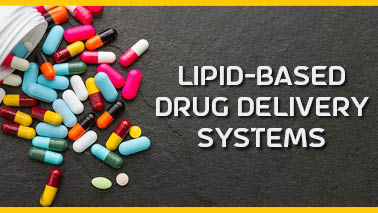
Lipid-based drug delivery systems are formulations that utilize lipids (fats or fat-like substances) as carriers or matrices for delivering drugs to target sites in the body. These systems offer advantages such as improved drug solubility, stability, bioavailability, and targeted delivery, making them versatile platforms for various routes of administration, including oral, parenteral, topical, and pulmonary delivery. Here's an overview of lipid-based drug delivery systems and their applications.
Liposomes
Structure and Composition:
Drug Encapsulation and Delivery:
Lipid Nanoparticles
Nanoemulsions:
Solid Lipid Nanoparticles (SLNs):
Lipid-Based Micelles
Structure and Properties:
Drug Solubilization and Delivery:
Applications in Drug Delivery
Oral Drug Delivery:
Parenteral Drug Delivery:
Topical and Transdermal Drug Delivery:
Pulmonary Drug Delivery:
Challenges and Considerations
Regulatory Approval and Commercialization:
Tags
Pharmacokinetics Conferences
Drug Discovery Conferences 2025 Asia
Pharmacovigilance Conferences
Drug Safety Conferences
Molecular Docking Conferences
Drug Delivery Conferences 2025 Middle East
Drug Delivery Conferences 2025 China
Drug Discovery Conferences 2025 Middle East
Drug Development Conferences
Drug Discovery Conferences 2025 Canada
Clinical Trial Conferences
Herbal Medicine Conferences
Computational Drug Design Conferences
Vaccines Development Conferences
Nano Drug Delivery Conferences
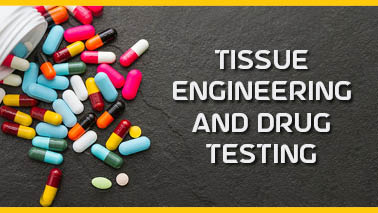
Tissue engineering and drug testing are interconnected fields that leverage advances in biology, engineering, and materials science to develop functional tissue models for studying drug responses, toxicity, and efficacy in vitro. Tissue engineering techniques enable the fabrication of three-dimensional (3D) tissue constructs that mimic the structure, function, and microenvironment of native tissues, providing physiologically relevant platforms for drug screening, disease modeling, and regenerative medicine applications. Here's how tissue engineering is used in drug testing:
3D Tissue Constructs
Cell-Based Models:
Multicellular Tissues:
Disease Modeling
Patient-Derived Models:
Organ-on-a-Chip Platforms:
Drug Screening and Toxicity Testing
High-Throughput Screening:
Safety Pharmacology:
Drug Development and Translation
Preclinical Drug Testing:
Disease Modeling and Therapy Development:
Challenges and Considerations:
Regulatory Approval and Adoption:
Tags
Drug Delivery Conferences 2025 Asia
Drug Delivery Conferences 2025 China
Drug Discovery Conferences 2025 Europe
Pharmaceutical Manufacturing Conferences
Vaccines Development Conferences
Drug Discovery Conferences 2025 China
Drug Delivery Conferences 2025 Canada
Toxicology Conferences
Vaccines Meetings
Herbal Medicine Conferences
Pharmacodynamics Conferences
Novel Drug Delivery Conferences
Drug Discovery Conferences 2025 Canada
Drug Discovery Conferences 2025
Drug Delivery Conferences 2025 USA
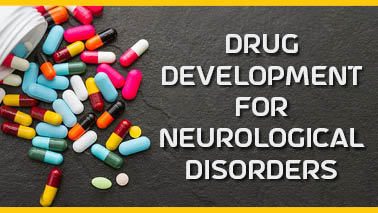
Drug development for neurological disorders encompasses the discovery, design, preclinical testing, clinical evaluation, and regulatory approval of therapeutic agents aimed at treating diseases and disorders affecting the central nervous system (CNS) and peripheral nervous system (PNS). Neurological disorders encompass a broad spectrum of conditions, including neurodegenerative diseases, neuropsychiatric disorders, epilepsy, stroke, pain syndromes, and neurodevelopmental disorders. Here's an overview of drug development strategies and challenges in the field of neurological disorders:
Target Identification and Drug Discovery
Molecular Targets:
Novel Therapeutic Modalities:
Preclinical Testing and Translational Research
Animal Models:
Disease Modeling:
Clinical Development and Trials
Clinical Trial Design:
Patient Recruitment and Stratification:
Regulatory Approval and Market Access
Regulatory Pathways:
Health Technology Assessment (HTA):
Tags
Pharmacokinetics Conferences
Drug Discovery Conferences 2025 Asia
Drug Safety Conferences
Drug Delivery Conferences 2025 Canada
Drug Delivery Conferences 2025
Computational Drug Design Conferences
Molecular Docking Conferences
Drug Development Conferences
Pharmacovigilance Conferences
Pharmacodynamics Conferences
Pharmaceutical Manufacturing Conferences
Novel Drug Delivery Conferences
Herbal Medicine Conferences
Toxicology Conferences
Clinical Trial Conferences
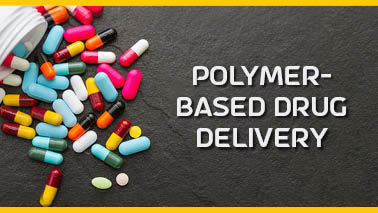
Polymer-based drug delivery refers to the use of polymers, which are large molecules composed of repeating subunits, as carriers for delivering drugs to specific targets in the body. These polymers can be designed to encapsulate drugs, protect them from degradation, control their release rate, and target specific tissues or cells.
There are several types of polymer-based drug delivery systems:
Tags
Pharmacovigilance Conferences
Drug Development Conferences
Drug Delivery Conferences 2025 Asia
Vaccines Meetings
Drug Delivery Conferences 2025
Pharmacodynamics Conferences
Molecular Docking Conferences
Drug Discovery Conferences
Drug Discovery Conferences 2025 China
Pharmacokinetics Conferences
Drug Discovery Conferences 2025 Europe
Drug Safety Conferences
Molecular Docking Conferences
Drug Discovery Conferences 2025
Toxicology Conferences
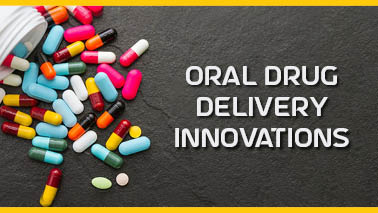
Oral drug delivery innovations encompass a wide range of advancements aimed at improving the effectiveness, safety, and convenience of delivering drugs via the oral route. Here are some notable innovations in oral drug delivery:
Tags
Drug Delivery Conferences 2025 Europe
Drug Development Conferences
Natural Products Conferences
Pharmacovigilance Conferences
Rare Disease Conferences
Drug Discovery Conferences 2025 Europe
Clinical Trial Conferences
Drug Safety Conferences
Drug Delivery Conferences 2025 USA
Molecular Docking Conferences
Drug Delivery Conferences 2025 Middle East
Drug Discovery Conferences 2025 Middle East
Herbal Medicine Conferences
Vaccines Development Conferences
Toxicology Conferences
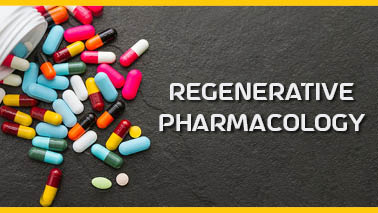
Regenerative pharmacology is an emerging field at the intersection of pharmacology and regenerative medicine. It focuses on developing pharmacological approaches to stimulate the body's natural regenerative processes, repair damaged tissues, and restore organ function. The goal of regenerative pharmacology is to harness the body's innate regenerative capacity and enhance it through the targeted use of drugs and other therapeutic interventions.
Key principles and approaches in regenerative pharmacology include:
Tags
Drug Delivery Conferences 2025 China
Drug Discovery Conferences 2025 Asia
Natural Products Conferences
Pharmacokinetics Conferences
Herbal Medicine Conferences
Drug Delivery Conferences 2025 Middle East
Pharmaceutical Manufacturing Conferences
Drug Discovery Conferences 2025 Canada
Drug Development Conferences
Drug Discovery Conferences 2025 Middle East
Vaccines Meetings
Rare Disease Conferences
Vaccines Development Conferences
Drug Delivery Conferences 2025 Asia
Drug Delivery Conferences 2025 Europe
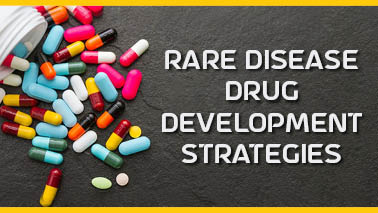
Rare disease drug development strategies are tailored approaches aimed at addressing the unique challenges associated with developing treatments for rare diseases, also known as orphan diseases. These strategies are essential because rare diseases typically affect a small population of patients, making traditional drug development approaches economically challenging. Here are some key strategies used in rare disease drug development:
Tags
Drug Discovery Conferences 2025 Europe
Toxicology Conferences
Drug Delivery Conferences 2025 Asia
Molecular Docking Conferences
Vaccines Development Conferences
Herbal Medicine Conferences
Drug Delivery Conferences 2025 Europe
Drug Discovery Conferences
Drug Development Conferences
Vaccines Meetings
Drug Delivery Conferences 2025 USA
Drug Delivery Conferences 2025 China
Novel Drug Delivery Conferences
Natural Products Conferences
Rare Disease Conferences
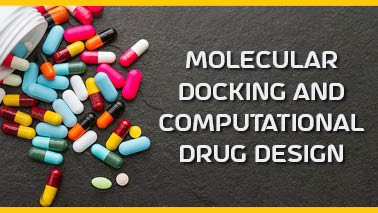
Molecular docking and computational drug design are powerful techniques used in the process of drug discovery and development to predict the binding mode and affinity of small molecule ligands to target proteins. These methods play a crucial role in identifying lead compounds, optimizing their interactions with target proteins, and ultimately designing novel drugs with desired pharmacological properties. Here's an overview of molecular docking and computational drug design:
Molecular Docking:
Computational Drug Design:
Applications:
Tags
Molecular Docking Conferences
Vaccines Meetings
Drug Discovery Conferences 2025 Canada
Rare Disease Conferences
Natural Products Conferences
Drug Discovery Conferences
Vaccines Development Conferences
Drug Discovery Conferences 2025 Europe
Drug Delivery Conferences 2025 Middle East
Pharmacokinetics Conferences
Pharmaceutical Manufacturing Conferences
Herbal Medicine Conferences
Drug Design Conferences
Drug Discovery Conferences 2025
Drug Safety Conferences
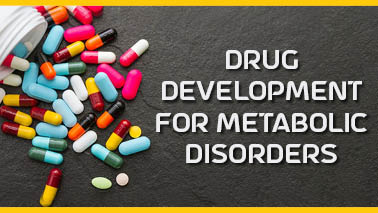
Drug development for metabolic disorders focuses on identifying and developing therapies to treat conditions that affect metabolism, such as diabetes, obesity, dyslipidemia, and metabolic syndrome. These disorders involve disruptions in the body's ability to regulate energy metabolism, glucose and lipid metabolism, hormone levels, and other metabolic processes. Here are some key aspects of drug development for metabolic disorders:
Tags
Drug Discovery Conferences 2025 Europe
Computational Drug Design Conferences
Drug Discovery Conferences 2025 Middle East
Drug Discovery Conferences
Drug Delivery Conferences 2025 China
Rare Disease Conferences
Drug Delivery Conferences 2025 Europe
Pharmaceutical Manufacturing Conferences
Drug Discovery Conferences 2025 USA
Drug Delivery Conferences 2025
Herbal Medicine Conferences
Toxicology Conferences
Molecular Docking Conferences
Drug Design Conferences
Drug Discovery Conferences 2025
The field of drug discovery, development, and delivery holds immense importance in improving global health outcomes. Drug discovery focuses on identifying promising new molecules with therapeutic potential. Development takes these molecules through rigorous testing to ensure safety and efficacy, paving the way for regulatory approval. Finally, drug delivery systems ensure the medication reaches the right target site within the body for maximum benefit.
This entire process is a multi-billion dollar industry fueled by the rising burden of chronic diseases and the continuous need for innovative treatments. The market is particularly vibrant in Asia, with its large patient population and growing research infrastructure. Advancements in these fields hold the key to tackling existing health challenges and improving patient lives.
The global pharmaceutical market is substantial and growing. As of 2023, the market size was valued at approximately $1.42 trillion and is expected to expand at a compound annual growth rate (CAGR) of around 3-6% over the next several years. Key factors driving this growth include an aging population, increasing prevalence of chronic diseases, advancements in biotechnology, and heightened focus on personalized medicine. The market is also fueled by significant investments in research and development (R&D), which accounted for about $200 billion in 2022, reflecting the sector's commitment to innovation and addressing complex health challenges.
Market Insights of Drug Discovery in Europe :
Europe's drug discovery market is a well-established player with robust growth potential. Estimated at USD 14.8 billion in 2020, and projected to reach USD 20.7 billion by 2028, reflecting a CAGR of 5.8%.
Market Insights of Drug Discovery in Asia :
The drug discovery market in Asia is touted as a burgeoning market, growing at an impressive rate and with mountains of potential. The market is expected to grow to a jaw dropping USD 137.72 billion by 2029, growing at a exceptional Compound Annual Growth Rate (CAGR) of 6.59%. Thus, the region is projected to develop as the largest, fastest-growing drug discovery worldwide.
Market Insights of Drug Discovery in USA :
Find a huge market for drug discovery with big pockets and lively research. US has the largest drug discovery market in the world with well established financial power and a dynamic research landscape. Market size of USD 100.10 billion in 2024 and is projected to reach USD 137.72, the market is estimated to grow at a CAGR of 6.59%. In this regard, the US arises as one of the companies driving the global drug development market.
Market Insights of Drug Discovery in Middle East :
The Middle East region drug discovery market is increasing tremendously but the region is at very nascent stage as compared to other regions such as Asia, Europe etc. Expected to grow by 5.71% during the forecast period of 2019-2028. As for actual market size figures, those are a bit scarce, however, analysts are expecting rapid growth, especially in markets like Saudi Arabia and the United Arab Emirates.
Market Insights of Drug Discovery in Australia :
China's drug discovery market is a force to be reckoned with, leading the Asian surge in this field. Here's a breakdown with a detailed CAGR report. While exact figures vary between reports, China's drug discovery market is expected to reach a staggering USD 70-80 billion by 2029 or even higher depending on the source. The projected Compound Annual Growth Rate (CAGR) paints a picture of phenomenal growth.10-12% CAGR. Up to 15% CAGR some reports like China Daily suggest an even faster growth trajectory, highlighting China's rapid advancements.
Market Insights of Drug Discovery in China :
China's drug discovery market is a force to be reckoned with, leading the Asian surge in this field. Here's a breakdown with a detailed CAGR report. While exact figures vary between reports, China's drug discovery market is expected to reach a staggering USD 70-80 billion by 2029 or even higher depending on the source. The projected Compound Annual Growth Rate (CAGR) paints a picture of phenomenal growth.10-12%. This is a commonly cited range by various reports like Grand View Research and Research and Markets.Up to 15% CAGR. Some reports like China Daily suggest an even faster growth trajectory, highlighting China's rapid advancements.
Market Insights of Drug Discovery in Canada :
Canada's drug discovery market, while smaller than its Asian and European counterparts, boasts impressive growth and unique characteristics. Estimated around CAD 800-900 million in annual R&D expenditures by pharmaceutical companies.A promising CAGR of 6.4% projected for the market by 2027.
Market Insights of Drug Development in Europe :
Europe's drug development market is a significant force globally, characterized by both established strength and promising growth. Market Size: The European clinical trials market, a key indicator of drug development activity, was valued at USD 14.8 billion in 2022. Growth Projection expected to reach USD 20.7 billion by 2028, reflecting a steady CAGR of 5.8%.
Market Insights of Drug Development in Asia :
The drug development market in Asia is mirroring the boom in drug discovery. Market size expected to reach a staggering USD 268.49 billion by 2030, reflecting significant growth potential. Growth Rate: A robust CAGR of 7.13% signifies a rapidly expanding market.
Market Insights of Drug Development in USA :
The US drug development market is a global leader, characterized by high investment and significant output. Market size exceeding USD 100 billion in annual R&D expenditure by pharmaceutical companies. Investment Intensity: Pharmaceutical companies in the US dedicate over 21% of their revenue to R&D, highlighting the sector's focus on innovation. Output: The US leads the world in the number of new drugs approved by the FDA, showcasing a robust development pipeline.
Market Insights of Drug Development in Middle East :
The Middle East's drug development market is on the rise, though still nascent compared to established regions. Market growth projected to reach around USD 60 billion by 2025, reflecting a significant CAGR.
Market Insights of Drug Development in Australia :
Australia's drug development market is attracting significant attention due to its efficiency and supportive environment. Market size while a specific market size for drug development alone isn't readily available, the overall Australian pharmaceutical market is projected to reach USD 10.16 billion in 2024, with a projected CAGR of 6.76%.
Market Insights of Drug Development in China :
China's drug development market is experiencing a meteoric rise, driven by several key factors. Chinese drug development market is currently valued at an impressive USD 40 billion. This figure is projected to reach a staggering USD 82 billion by 2028, reflecting a remarkable CAGR of 14.9%.Clinical Trial Activity: China accounts for nearly 28% of global clinical trial activity, highlighting its significance in the global drug development landscape. China's commitment to innovation is evident in its rising R&D spending in pharmaceuticals and biotechnology. The country is investing heavily, with expenditure reaching 2.4% of its GDP in 2020.
Market Insights of Drug Development in Canada :
Canada's drug discovery market focuses on initial research, the development phase holds significant weight too. Market Size: Precise figures are elusive, but estimates suggest the Canadian pharmaceutical market, encompassing both drugs and development activities, is valued around USD 33.34 billion.This market is expected to reach USD 41.94 billion by 2029, reflecting a promising CAGR of 4.70%. R&D Expenditures: While specific figures for development spending are limited, we can look at total R&D expenditures by pharmaceutical companies selling patented medicines in Canada. These were reported to be around CAD 922.9 million in 2021
Market Insights of Drug Delivery in Europe :
Europe's drug delivery market is a significant one, with both established technologies and a strong push for innovation. Market Size: Expected to reach a value of USD 708.15 million by 2030, growing at a CAGR of 7.7%. Injectable Segment: A powerhouse, reaching an estimated USD 207.3 billion by 2020 with a high CAGR.
Market Insights of Drug Delivery in Asia :
The drug delivery market in Asia is experiencing significant growth, driven by various factors. Market Size: Expected to reach a staggering USD 30.39 billion by 2030, reflecting a Compound Annual Growth Rate (CAGR) of 8.50%.
Market Insights of Drug Delivery in USA :
The US drug delivery market is a significant one, with a strong market size and promising growth trajectory.Market value estimated at USD 15.13 billion in 2022 , and projected to reach over USD 26.6 billion by 2030 at a CAGR of 8.9%.
Market Insights of Drug Delivery in Middle East :
The Middle Eastern drug delivery market is on a promising trajectory, with growth fueled by several factors we can express in numbers.Market Size: Projected to reach USD 1.19 billion by 2028, with a healthy CAGR of 6.2% from 2023. This growth is driven by the increasing prevalence of chronic diseases in the region, requiring sustained and targeted drug delivery solutions.
Market Insights of Drug Delivery in Australia :
Australia's drug delivery market is projected for steady growth, with a focus on innovation and catering to specific needs.Market Size: While a specific figure for 2024 isn't readily available, the market was estimated at around USD 2.3 billion in 2021. The market is expected to register a CAGR of nearly 5.1% during the forecast period 2021-2029. This translates to a projected market size of approximately USD 3.2 billion by 2029.
Market Insights of Drug Delivery in China :
China's drug delivery market is a powerhouse, experiencing rapid expansion.Market Size: Valued at a staggering USD 252.6 billion. Projecting a robust CAGR of 9.3% over the next 5 years.
Market Insights of Drug Delivery in China :
The Canadian drug delivery market is a vibrant and growing sector within the broader life sciences industry. Here's a breakdown to understand its scope and potential. The Canadian drug delivery market is projected to reach USD 27.431 billion by 2027. While smaller than the US market, it boasts a healthy growth rate.
PHARMACEUTICAL COMPANIES
USA
Pfizer Inc. / Johnson & Johnson / Merck & Co., Inc. / AbbVie Inc. / Amgen Inc / Bristol Myers Squibb Company / Gilead Sciences, Inc. / Eli Lilly and Company / Biogen Inc. / Celgene Corporation (acquired by Bristol Myers Squibb) / Allergan plc (acquired by AbbVie) / Regeneron Pharmaceuticals, Inc. / Vertex Pharmaceuticals Incorporated / Novartis Pharmaceuticals Corporation (US subsidiary of Novartis) / AstraZeneca Pharmaceuticals LP (US subsidiary of AstraZeneca) / Sanofi US / GlaxoSmithKline (GSK) Pharmaceuticals / Roche Holdings Inc. (US subsidiary of Roche) / Takeda Pharmaceutical Company Limited (US subsidiary of Takeda) / Biogen Idec Inc. (merged with Biogen, now Biogen Inc.) / Alexion Pharmaceuticals, Inc. / Jazz Pharmaceuticals plc / Perrigo Company plc / Mallinckrodt Pharmaceuticals / Endo International plc / Mylan N.V. / Horizon Therapeutics plc / Incyte Corporation / Jazz Pharmaceuticals plc / Teva Pharmaceuticals USA (US subsidiary of Teva Pharmaceutical Industries Ltd.) / Catalent, Inc. / Acadia Pharmaceuticals Inc. / Intercept Pharmaceuticals, Inc. / Alkermes plc / Pacira BioSciences, Inc. / Emergent BioSolutions Inc. / Ironwood Pharmaceuticals, Inc. / Nektar Therapeutics / Horizon Therapeutics plc / Lannett Company, Inc. / Retrophin, Inc. / ACADIA Pharmaceuticals Inc. / Supernus Pharmaceuticals, Inc. / Innoviva, Inc. / Xencor, Inc. / Dynavax Technologies Corporation / AMAG Pharmaceuticals, Inc. / Aimmune Therapeutics, Inc. / Pacira Pharmaceuticals, Inc. / Vanda Pharmaceuticals Inc. / Neurocrine Biosciences, Inc. / Opko Health, Inc. / Zogenix, Inc. / Corcept Therapeutics Incorporated / Xeris Pharmaceuticals, Inc. / TG Therapeutics, Inc. / Karyopharm Therapeutics Inc. / Athersys, Inc. / Intercept Pharmaceuticals, Inc. / Zosano Pharma Corporation / Karyopharm Therapeutics Inc. / Agile Therapeutics, Inc. / Otonomy, Inc. / Aytu BioScience, Inc. / Tricida, Inc. / MacroGenics, Inc. / Reata Pharmaceuticals, Inc. / Mirum Pharmaceuticals, Inc. / Turning Point Therapeutics, Inc. / Denali Therapeutics Inc. / Assembly Biosciences, Inc. / Zynerba Pharmaceuticals, Inc. / BeyondSpring Inc. / MannKind Corporation / Voyager Therapeutics, Inc. / Soleno Therapeutics, Inc. / Atara Biotherapeutics, Inc. / VBI / Vaccines Inc. / Atreca, Inc. / Syndax Pharmaceuticals, Inc. / Synlogic, Inc. / Arrowhead Pharmaceuticals, Inc. / Marinus Pharmaceuticals, Inc. / Verastem Oncology / Voyager Therapeutics, Inc. / X4 Pharmaceuticals, Inc. / Aduro Biotech, Inc. / Apellis Pharmaceuticals, Inc. / Ovid Therapeutics Inc. / T2 Biosystems, Inc. / Neon Therapeutics, Inc. / Zafgen, Inc. / Arcturus Therapeutics Holdings Inc. / Bellicum Pharmaceuticals, Inc. / bluebird bio, Inc. / Crinetics Pharmaceuticals, Inc. / Agenus Inc. / ObsEva SA / Fulcrum Therapeutics, Inc. / Akebia Therapeutics, Inc
Europe
Novartis AG (Switzerland) / Roche Holding AG (Switzerland) / GlaxoSmithKline PLC (United Kingdom) / AstraZeneca PLC (United Kingdom) / Sanofi SA (France) / Bayer AG (Germany) / Merck KGaA (Germany) / Novo Nordisk A/S (Denmark) / Boehringer Ingelheim GmbH (Germany) / UCB S.A. (Belgium) / Shire (now part of Takeda Pharmaceutical Company Limited) (Ireland) / Teva Pharmaceutical Industries Ltd. (Israel, with significant operations in Europe) / Ipsen (France) / Grifols (Spain) / Ferring Pharmaceuticals (Switzerland) / Lundbeck (Denmark) / Almirall (Spain) / Recordati S.p.A. (Italy) / Indivior (United Kingdom) / Hikma Pharmaceuticals PLC (Jordan, with operations in Europe) / Orion Corporation (Finland) / Aurobindo Pharma Limited (India, with operations in Europe) / Chiesi Farmaceutici S.p.A. (Italy) / STADA Arzneimittel AG (Germany) / Mediolanum Farmaceutici S.p.A. (Italy) / Vifor Pharma (Switzerland) / Meda AB (Sweden) / Medice Arzneimittel Pütter GmbH & Co. KG (Germany) / F. Hoffmann-La Roche AG (Switzerland) / H. Lundbeck A/S (Denmark) / Otsuka Pharmaceutical Europe Ltd (United Kingdom) / Pierre Fabre Group (France) / Krka, d. d., Novo mesto (Slovenia) / Grünenthal GmbH (Germany) / Ipsen Pharma (France) / Angelini (Italy) / Recordati S.p.A. (Italy) / Galenica AG (Switzerland) / Servier Laboratories (France) / Esteve (Spain) / Aesica Pharmaceuticals (United Kingdom) / Alfasigma S.p.A. (Italy) / Ferrer (Spain) / FAES FARMA (Spain) / UCB Biopharma SPRL (Belgium) / Evotec AG (Germany) / Aenova Group (Germany) / Tillotts Pharma (Switzerland) / LEO Pharma A/S (Denmark) / Orion Pharma (Finland) / Hikma Pharmaceuticals PLC (Jordan, with operations in Europe) / Glenmark Pharmaceuticals (India, with operations in Europe) / Sandoz (a division of Novartis AG, Switzerland) / Ewopharma AG (Switzerland) / Alkermes plc (Ireland, with operations in Europe) / Gedeon Richter Plc. (Hungary) / Amryt Pharma plc (Ireland, with operations in Europe) / Arvelle Therapeutics GmbH (Germany) / EUSA Pharma (United Kingdom) / Zentiva (Czech Republic, with operations across Europe) / Medis (Slovenia) / BioGaia (Sweden) / Laboratorios LETI (Spain) / Takeda Pharmaceutical Company Limited (Japan, with operations in Europe) / Norgine (United Kingdom) / Gedeon Richter Plc. (Hungary) / Galderma S.A. (Switzerland) / BioNTech SE (Germany) / Glenmark Pharmaceuticals Europe Ltd (United Kingdom) / Dechra Pharmaceuticals PLC (United Kingdom) / Kyowa Kirin International plc (United Kingdom) / Ferring Pharmaceuticals (Switzerland) / Chemnovatic (Poland) / Bial-Portela & CA S.A. (Portugal) / PharmaMar (Spain) / Norgine (United Kingdom) / Teva Pharmaceuticals Europe B.V. (Netherlands) / Menarini (Italy) / Amgen Europe B.V. (Netherlands)
Asia
Jiangsu Hengrui Medicine Co. Ltd. (China) / BeiGene Ltd. (China) / Chongqing Zhifei Biological Products Co. Ltd. (China) / Yunnan Baiyao Group Co. Ltd. (China) / Huadong Medicine Co. Ltd. (China) / Nippon Chemiphar Co., Ltd. (Japan) / Nichi-Iko Pharmaceutical Co., Ltd. (Japan) / Rohto Pharmaceutical Co., Ltd. (Japan) / Maruho Co., Ltd. (Japan) / Meiji Seika Pharma Co., Ltd. (Japan) / Teijin Pharma Ltd. (Japan) / Kaken Pharmaceutical Co., Ltd. (Japan) / Kyorin Pharmaceutical Co., Ltd. (Japan) / Fosun Pharma (China) / Sinopharm Group Co. Ltd. (China) / CSPC Pharmaceutical Group (China) / Sino Biopharmaceutical (China) / Zhejiang Hisun Pharmaceutical (China) / Tasly Pharmaceutical Group (China) / Shandong Weigao Group (China) / Guangzhou Pharmaceuticals (China) / Walvax Biotechnology Co., Ltd.(China) / Jiangsu Hansoh Pharmaceutical Group Co., Ltd. (China) / Shanghai Pharmaceuticals Holding Co., Ltd. (China) / Tonghua Dongbao Pharmaceutical Co., Ltd. (China) / Kangmei Pharmaceutical Co., Ltd. (China) / North China Pharmaceutical Group Corp. (China) / Hybio / Pharmaceutical Co., Ltd. (China) / Hunan Er-Kang Pharmaceutical Co., Ltd. (China) / Chiatai Tianqing Pharmaceutical Group Co., Ltd. / Harbin Pharmaceutical Group Co., Ltd.(China) / Guangdong Zhongsheng Pharmaceutical Co., Ltd. (China) / Shenzhen Hepalink Pharmaceutical Group Co., Ltd. (China) / Zhejiang NHU Co., Ltd. (China) / 3SBio Inc. (China) / Cipla Ltd. (India) / Dr. Reddy’s Laboratories (India) / Lupin Ltd. (India) / Aurobindo Pharma (India) / Piramal Enterprises Ltd. (India) / Zydus Cadila (India) / Biocon Ltd. (India) / Torrent Pharmaceuticals Ltd. (India) / Alkem Laboratories (India) / Mankind Pharma (India) / Glenmark / Pharmaceuticals (India) / Wockhardt Ltd. (India) / Alembic Pharmaceuticals Ltd. (India) / Strides Pharma Science (India) / Natco Pharma Ltd. (India) / Cadila Pharmaceuticals (India) / Intas Pharmaceuticals (India) / Shenzhen / Salubris Pharmaceuticals Co., Ltd. (China) / Qilu Pharmaceutical Co., Ltd. (China) / Kalbe Farma (Indonesia) / PT Kimia Farma Tbk (Indonesia) / Opsonin Pharma Limited (Bangladesh) / Square Pharmaceuticals Ltd. (Bangladesh) / Popular Pharmaceuticals Ltd. (Bangladesh) / Beximco Pharmaceuticals Ltd. (Bangladesh) / Nicholas Piramal India Ltd. (India) / Sun Pharma Advanced Research Company Ltd. (India) / Shandong Luoxin Pharmaceutical Group (China) / Taiwan Liposome / Company (TLC) (Taiwan) / PharmaEssentia (Taiwan) / ScinoPharm Taiwan, Ltd. (Taiwan) / TaiGen Biotechnology (Taiwan) / Grape King Bio Ltd. (Taiwan) / Synmosa Biopharma Corporation (Taiwan) / Lotus Pharmaceutical Co., Ltd. (Taiwan) / Glenmark Pharmaceuticals Ltd. (Taiwan) / Samsung Biologics (South Korea) / Celltrion (South Korea) / Hanmi Pharmaceutical Co., Ltd. (South Korea) / LG Chem Life Sciences (South Korea) / SKBiopharmaceuticals (South Korea) / Daewoong Pharmaceutical Co., Ltd. (South Korea) / Yuhan Corporation (South Korea) / Green Cross Corporation (South Korea) / Dong-A ST Co., Ltd. (South Korea) / JW Pharmaceutical Corporation (South Korea) / Sun Pharmaceutical Industries / Orchid Pharma (India) / Jubilant Life Sciences (India) / Panacea Biotec (India) / FDC Limited (India) / Indoco Remedies (India) / Nectar Lifesciences Ltd.(India) / Granules India Ltd. (India) / Ajanta Pharma (India) / Dishman Pharmaceuticals and Chemicals Ltd. (India) / AstraZeneca Pharma India Ltd. (India) / Biophar Lifesciences Pvt. Ltd. (India) / Shasun Pharmaceuticals Ltd. (India) / Emcure Pharmaceuticals (India) / Gufic Biosciences Ltd.(India) / Albert David Ltd. (India) / Shilpa Medicare Ltd. (India) / Medley Pharmaceuticals(India) / Aristo Pharmaceuticals Pvt. Ltd.(India) / Neuland Laboratories Ltd. (India) / Vivimed Labs Ltd. (India) / Suven Life Sciences Ltd. (India) / Takeda Pharmaceutical Company (Japan) / Astellas Pharma Inc. (Japan) / Daiichi Sankyo Co., Ltd. (Japan) / Otsuka Holdings Co., Ltd. (Japan) / Chugai Pharmaceutical Co., Ltd. (Japan) / Sumitomo Dainippon Pharma Co., Ltd. (Japan) / Eisai Co., Ltd. (Japan) / Shionogi & Co., Ltd. / Kyowa Kirin Co., Ltd. (Japan) / Mitsubishi Tanabe Pharma Corporation (Japan) / Kowa Company, Ltd. (Japan) / Hisamitsu Pharmaceutical Co., Inc. (Japan)
Middle East
Hikma Pharmaceuticals - Jordan / Julphar (Gulf Pharmaceutical Industries) - UAE / Tabuk Pharmaceuticals - Saudi Arabia / Saudi Pharmaceutical Industries & Medical Appliances Corporation (SPIMACO Addwaeih) - Saudi Arabi / Ibnsina Pharma - Egypt / Egyptian International Pharmaceutical Industries Company (EIPICO) - Egypt / Jamjoom Pharma - Saudi Arabia / Eva Pharma - Egypt / Kuwait Saudi Pharmaceutical Industries Company (KSPICO) - Kuwait / Adwya - Tunisia / Pharco Pharmaceuticals - Egypt / Sothema - Morocco / Medisal Pharmaceuticals - UAE / Al-Jazeera Pharmaceutical Industries (JPI) - Saudi Arabia / Remedica Ltd - Cyprus / Saudi Chemical Company Holding - Saudi Arabia / Julphar Diabetes (Gulf Injectable Solutions) - UAE / Qatar Pharma - Qatar / Spimaco Addwaeih Pharmaceuticals - Saudi Arabia / Julphar Pharmaceuticals - UAE / Aspen Pharmacare Middle East - UAE / Sanofi Egypt - Egypt / SPIMACO Addwaeih - Saudi Arabia / Medeor Pharmaceuticals - UAE / Riyadh Pharma - Saudi Arabia / Julphar - UAE / Mepaco-Medifood - Egypt / MS Pharma - Jordan / Saidar - Jordan / ACDIMA BioCenter - Jordan / Elaj Group - Saudi Arabia / Hikma Ventures - Jordan / Naseem Healthcare - Oman / PureHealth Group - UAE / G42 Healthcare - UAE / Life Healthcare Group - UAE / Mouwasat Medical Services - Saudi Arabia / Saudi German Health (SGH) - Saudi Arabia / Burjeel Holdings - UAE / King Faisal Specialist Hospital and Research Centre (KFSH&RC) - Saudi Arabia / Cleopatra Hospitals Group - Egypt / Almajal G4S - Saudi Arabia / BioPharm - Algeria / Cooper Pharma - Morocco / Al Hammadi Company for Development and Investment - Saudi Arabia / Dallah Healthcare Company - Saudi Arabia / Magrabi Hospitals & Centers - Saudi Arabia / National Medical Care Company - Saudi Arabia / Al-Dawaa Medical Services Company (DMSCO) - Saudi Arabia / Alameda Healthcare Group - Egypt / The Specialty Hospital - Jordan / Sidra Medicine - Qatar / Arabian Healthcare Group (RAK Hospital) - UAE / Al Maidan Clinic - Kuwait / Zulekha Healthcare Group - UAE / Amanat Holdings - UAE / Al Khayyat Investments (AKI) - UAE / Gulf Medical Projects Company - UAE / NMC Healthcare Group - UAE / Thumbay Group - UAE / Oman Pharmaceutical Products Co. LLC (OPP) - Oman / Oman Arab Pharmaceutical Products Co. LLC (OAPCO) - Oman / Saudi International Trading Company (SITCO) - Saudi Arabia / Al Riyadh Development Company - Saudi Arabia / Dammam Pharmaceuticals - Saudi Arabia / GSK Arabia - Saudi Arabia / Novartis Pharma Services - UAE / Pfizer Middle / East - UAE / Roche Middle East - UAE / Medtronic Middle East - UAE / AbbVie Middle East - UAE / Eli Lilly Middle East - UAE / Siemens Healthineers Middle East - UAE / Oracle Cerner - UAE / Viatris Middle East - UAE / Merck Sharp & Dohme (MSD) - UAE / GE HealthCare Middle East - UAE / 3M Health Care Middle East - UAE / Zimmer Biomet Middle East - UAE / Johnson & Johnson Middle East - UAE / Boehringer Ingelheim Middle East - UAE / Baxter Middle East - UAE / Mölnlycke Health Care Middle East - UAE / Grifols Middle East - UAE / Danaher Middle East - UAE / Becton Dickinson Middle East - UAE / Philips Healthcare Middle East - UAE / Fresenius Medical Care Middle East - UAE / Olympus Middle East - UAE / Smith & Nephew Middle East - UAE / Stryker Middle East - UAE / Terumo Middle East - UAE / Carl Zeiss Middle East - UAE / Medline Middle East - UAE / Ansell Middle East - UAE / Dentsply Sirona Middle East - UAE / Nobel Biocare Middle East - UAE / Systagenix Middle East - UAE / Advanced Medical Solutions Middle East - UAE
PHARMACEUTICAL JOURNALS
Nature Reviews Drug Discovery - United Kingdom / Pharmacological Reviews - United States / Drug Resistance Updates - United States / Annual Review of Pharmacology and Toxicology - United States / Molecular Therapy - United States / Journal for ImmunoTherapy of Cancer - United Kingdom / Trends in Pharmacological Sciences - United Kingdom / Pharmacology and Therapeutics - United States / Medicinal Research Reviews - United States / Neuropsychopharmacology - United Kingdom / Cell Chemical Biology - United States / Pain - United States / Cellular and Molecular Life Sciences - Switzerland / Pharmacological Research - United States / npj Vaccines - United Kingdom / British Journal of Pharmacology - United States / Clinical Pharmacology and Therapeutics - United States / Acta Pharmacologica Sinica - United Kingdom / BioDrugs - United Kingdom / European Neuropsychopharmacology - United Kingdom / European Journal of Pharmacology - Netherlands / Journal of Controlled Release - Netherlands / Journal of Pharmaceutical Sciences - United States / Journal of Medicinal Chemistry - United States / Pharmaceutics - Switzerland / Pharmaceutical Research - United States / Drug Discovery Today - United Kingdom / Journal of Pharmacology and Experimental Therapeutics - United States / International Journal of Pharmaceutics - Netherlands / Journal of Ethnopharmacology - Netherlands / Biochemical Pharmacology - United States / Pharmaceuticals - Switzerland / Advanced Drug Delivery Reviews - Netherlands / / Expert Opinion on Drug Delivery - United Kingdom / Drug Metabolism and Disposition - United States / Journal of Pharmaceutical and Biomedical Analysis - Netherlands / AAPS Journal - United States / Pharmaceutical Biology - United Kingdom / Journal of Pharmacy and Pharmacology - United Kingdom / Pharmacotherapy - United States / Clinical Pharmacokinetics - New Zealand / Journal of Clinical Pharmacology - United States / Journal of Antimicrobial Chemotherapy - United Kingdom / Drug Safety - New Zealand / Antimicrobial Agents and Chemotherapy - United States / European Journal of Clinical Pharmacology - Germany / Molecular Pharmaceutics - United States / Journal of Antibiotics - Japan / Drug Development and Industrial Pharmacy - United States / Journal of Natural Products - United States / Pharmacological Reports - Poland / Therapeutic Advances in Drug Safety - United Kingdom / Current Pharmaceutical Design - Netherlands / Drug Development Research - United States / Journal of Drug Targeting - United Kingdom / Journal of Pharmacokinetics and Pharmacodynamics - United States / European Journal of Drug Metabolism and Pharmacokinetics - Switzerland / Clinical and Translational Science - United States / Journal of Clinical Pharmacology and Therapeutics - United Kingdom / Pharmacogenomics Journal - United Kingdom / Molecular Diversity - Netherlands / Drug Metabolism Reviews - United States / Journal of Chemical Information and Modeling - United States / Pharmaceutical Development and Technology - United Kingdom / Clinical Drug Investigation - New Zealand / Journal of Enzyme Inhibition and Medicinal Chemistry - United Kingdom / Journal of Molecular Medicine - Germany / Journal of Clinical Medicine - Switzerland / Expert Opinion on Drug Metabolism & Toxicology - United Kingdom / Pharmacogenomics - United Kingdom / Journal of Pharmacy Practice - United States / Current Drug Metabolism - United Arab Emirates / BMC Pharmacology and Toxicology - United Kingdom / Journal of Cardiovascular Pharmacology - United States / Biomaterials - Netherlands / ChemMedChem - Germany / Chemistry & Biology - United States / Future Medicinal Chemistry - United Kingdom / Drug Testing and Analysis - United Kingdom / European Journal of Pharmaceutical Sciences - Netherlands / Current Topics in Medicinal Chemistry - Netherlands / Journal of Pharmaceutical Innovation - United States / Journal of Liposome Research - United Kingdom / Pharmacognosy Reviews - India Journal of Pharmacy and Bioallied Sciences - India / Journal of Pharmacological Sciences - Japan / Archives of Pharmacal Research - South Korea / Asian Journal of Pharmaceutical Sciences - China / Saudi Pharmaceutical Journal - Saudi Arabia / Iranian Journal of Pharmaceutical Research - Iran / Indian Journal of Pharmaceutical Sciences - India / Chinese Journal of Natural Medicines - China / Acta Pharmaceutica Sinica B - China / Journal of Global Antimicrobial Resistance - Netherlands / Journal of Clinical Pharmacy and Therapeutics - United Kingdom / Die Pharmazie - Germany / Annals of Pharmacotherapy - United States / Journal of Clinical and Experimental Pharmacology - United States / Journal of Pharmacognosy and Phytotherapy - United States / Frontiers in Pharmacology - Switzerland
ASSOCIATIONS
USA
American Pharmacists Association (APhA) / American Society of Health-System Pharmacists (ASHP) / National Community Pharmacists Association (NCPA) / Academy of Managed Care Pharmacy (AMCP) / American College of Clinical Pharmacy (ACCP) / Pharmaceutical Research and Manufacturers of America (PhRMA) / Biotechnology Innovation Organization (BIO) / Generic Pharmaceutical Association (GPhA) / National Association of Chain Drug Stores (NACDS) / National Pharmaceutical Association (NPhA) / American Association of Pharmaceutical Scientists (AAPS) / American Association of Colleges of Pharmacy (AACP) / International Society for Pharmaceutical Engineering (ISPE) / Drug Information Association (DIA) / National Association of Boards of Pharmacy (NABP) / American Society for Clinical Pharmacology and Therapeutics (ASCPT) / American College of Apothecaries (ACA) / International Pharmaceutical Federation (FIP) / Society of Hospital Medicine (SHM) / American Society of Consultant Pharmacists (ASCP) / American Medical Association (AMA) / American Academy of Family Physicians (AAFP) / American Nurses Association (ANA) / American Society of Anesthesiologists (ASA) / American College of Surgeons (ACS) / American Psychiatric Association (APA) / American Heart Association (AHA) / American Cancer Society (ACS) / American Diabetes Association (ADA) / American Lung Association (ALA) / Alzheimer's Association / Arthritis Foundation / Cystic Fibrosis Foundation / Epilepsy Foundation / Huntington's Disease Society of America / Leukemia & Lymphoma Society / Muscular Dystrophy Association / National Multiple Sclerosis Society / Parkinson's Foundation / American Society of Clinical Oncology (ASCO) / American Academy of Pediatrics (AAP) / American College of Physicians (ACP) / American Academy of Neurology (AAN) / American College of Rheumatology (ACR) / American Gastroenterological Association (AGA) / American Association for Cancer Research (AACR) / Infectious Diseases Society of America (IDSA) / American Thoracic Society (ATS) / American Urological Association (AUA) / Endocrine Society / American College of Cardiology (ACC) / American Association of Endodontists (AAE) / American Association of Oral and Maxillofacial Surgeons (AAOMS) / American Academy of Orthopaedic Surgeons (AAOS) / American Academy of Otolaryngology-Head and Neck Surgery (AAO-HNS) / American Academy of Periodontology (AAP) / American Association of Clinical Endocrinologists (AACE) / American College of Allergy, Asthma & Immunology (ACAAI) / American Academy of Dermatology (AAD) / American Society of Hematology (ASH) / American Association of Neurological Surgeons (AANS) / American College of Obstetricians and Gynecologists (ACOG) / American College of Osteopathic Family Physicians (ACOFP) / American Osteopathic Association (AOA) / National Council for Prescription Drug Programs (NCPDP) / Association for Accessible Medicines (AAM) / Society for Clinical Trials (SCT) / American Geriatrics Society (AGS) / American Public Health Association (APHA) / American Telemedicine Association (ATA) / Society of Nuclear Medicine and Molecular Imaging (SNMMI) / American Society of Addiction Medicine (ASAM) / National Association of Psychiatric Health Systems (NAPHS) / American Society for Microbiology (ASM) / American Society of Gene & Cell Therapy (ASGCT) / International Society of Pharmacovigilance (ISoP) / Society of Toxicology (SOT) / American Association of Critical-Care Nurses (AACN) / National Association of Chain Drug Stores Foundation (NACDS Foundation) / American Academy of Emergency Medicine (AAEM) / American College of Medical Toxicology (ACMT) / Society for Neuroscience (SfN) / American College of Preventive Medicine (ACPM) / National Alliance of State Pharmacy Associations (NASPA) / Society of Critical Care Medicine (SCCM) / American College of Veterinary Pharmacists (ACVP) / American Academy of Optometry (AAO) / American Society for Parenteral and Enteral Nutrition (ASPEN) / Society of Gynecologic Oncology (SGO) / American Society of Echocardiography (ASE) / American College of Medical Genetics and Genomics (ACMG) / Society for Vascular Surgery (SVS) / American Institute of Ultrasound in Medicine (AIUM) / American College of Radiology (ACR) / American Orthopaedic Association (AOA) / American Podiatric Medical Association (APMA) / American Academy of Pain Medicine (AAPM) / American Academy of Physical Medicine and Rehabilitation (AAPM&R) / National Institute for Pharmaceutical Technology & Education (NIPTE) / American Society of Nephrology (ASN)
Europe
European Confederation of Pharmaceutical Entrepreneurs (EUCOPE) / World Orphan Drug Congress Europe / World Evidence, Pricing, and Access Congress / BioFIT / Discovery Europe / Global Drug Delivery & Formulation Summit / RESCON Europe / European Federation of Pharmaceutical Industries and Associations (EFPIA) / European Association for Clinical Pharmacology and Therapeutics (EACPT) / European Society for Medical Oncology (ESMO) / European Association of Hospital Pharmacists (EAHP) / European Association for the Study of the Liver (EASL) / European Society of Cardiology (ESC) / International Pharmaceutical Federation (FIP) / European / Hematology Association (EHA) / European Respiratory Society (ERS) / European Society of Clinical Microbiology and Infectious Diseases (ESCMID) / European Society for Paediatric Oncology (SIOP Europe) / European Academy of Allergy and Clinical Immunology (EAACI) / European League Against Rheumatism (EULAR) / European Society for Therapeutic Radiology and Oncology (ESTRO) / European Society of Endocrinology (ESE) / European Society of Human Genetics (ESHG) / European Society of Anaesthesiology and Intensive Care (ESAIC) / European Society of Ophthalmology (SOE) / European Society of Pathology (ESP) / European Association of Urology (EAU) / European Academy of Neurology (EAN) / European Society of Hypertension (ESH) / European Society for Vascular Surgery (ESVS) / European Academy of Dermatology and Venereology (EADV) / European Society of Neuroradiology (ESNR) / European Society of Gastrointestinal and Abdominal Radiology (ESGAR) / European Society of CardioVascular and Endovascular Surgery (ESCVS) / European Society of Medical Imaging Informatics (EuSoMII) / European Federation of Clinical Chemistry and Laboratory Medicine (EFLM) / European Board of Urology (EBU) / European Board of Radiology (EBR) / European Organisation for Research and Treatment of Cancer (EORTC) / European Society for Blood and Marrow Transplantation (EBMT) / European Society of Breast Cancer Specialists (EUSOMA) / European Society for the Study of Diabetes (EASD) / European Society of Gynecological Oncology (ESGO) / European Association for Cancer Research (EACR) / European Association of Dermato-Oncology (EADO) / European College of Neuropsychopharmacology (ECNP) / European Federation of Neurological Societies (EFNS) / European Society for Clinical Nutrition and Metabolism (ESPEN) / European Society of Emergency Medicine (EUSEM) / European Society of Intensive Care Medicine (ESICM) / European Society of Cataract and Refractive Surgeons (ESCRS) / European Society for Immunodeficiencies (ESID) / European Society of Coloproctology (ESCP) / European Society of Contraception and Reproductive Health (ESC) / European Association of Nuclear Medicine (EANM) / European Association for the Study of Obesity (EASO) / European Society for Trauma and Emergency Surgery (ESTES) / European Association of Neurosurgical Societies (EANS) / European Society for Gynaecological Endoscopy (ESGE) / European Society of Musculoskeletal Radiology (ESSR) / European Paediatric Neurology Society (EPNS) / European Academy of Paediatrics (EAP) / European Society for Sexual Medicine (ESSM) / European Society for Dermatological Research (ESDR) / European Society of Cosmetic and Aesthetic Dermatology (ESCAD) / European Society of Radiology (ESR) / European Academy of Cancer Sciences (EACS) / European Association of Cardiothoracic Anaesthesiologists (EACTA) / European Society of Oncology Pharmacy (ESOP) / European Brain Council (EBC) / European Union Geriatric Medicine Society (EUGMS) / European Society of Molecular Imaging (ESMI) / European Academy of Neurology (EAN) / European Stroke Organisation (ESO) / European Association of Psychosomatic Medicine (EAPM) / European Society for Clinical Virology (ESCV) / European Society for Molecular Oncology (ESMO) / European Society for Radiotherapy and Oncology (ESTRO) / European Society for Medical Oncology (ESMO) / European Society for Gene and Cell Therapy (ESGCT) / European Society for Paediatric Infectious Diseases (ESPID) / European Society for Neuro-Oncology (EANO) / European Society for Photobiology (ESP) / European Society for Hyperthermic Oncology (ESHO) / European Society for Artificial Organs (ESAO) / European Society for Biomaterials (ESB) / European Society for Clinical Investigation (ESCI) / European Society for Organ Transplantation (ESOT) / European Society for Pediatric Nephrology (ESPN) / European Society for Primary Care Gastroenterology (ESPCG) / European Society for the Study of Coeliac Disease (ESsCD) / European Society for the Study of Tourette Syndrome (ESSTS) / European Society of Aesthetic Gynecology (ESAG) / European Society of Anaesthesiology (ESA) / European Society of Cardiology (ESC) / European Society of Clinical Microbiology and Infectious Diseases (ESCMID) / European Society of Endodontology (ESE) / European Society of Gastroenterology (ESGE) / European Society of Human Reproduction and Embryology (ESHRE) / European Society of Neuroradiology (ESNR)
Asia
Asian Federation of Pharmaceutical Sciences (AFPS) / Asia Pacific Association of Allergy, Asthma and Clinical Immunology (APAAACI) / Asian Clinical Oncology Society (ACOS) / Asian and Oceanian Myology Center (AOMC) / Asia Pacific Federation of Pharmacologists (APFP) / Asia Pacific Hospice Palliative Care Network (APHN) / Asia Pacific League of Associations for Rheumatology (APLAR) / Asia Pacific Paediatric Endocrine Society (APPES) / Asia Pacific Society for Immunodeficiencies (APSID) / Asia Pacific Society of Cardiology (APSC) / Asia Pacific Society of Clinical Microbiology and Infection (APSCMI) / Asian Academy of Preventive Dentistry (AAPD) / Asian Association for the Study of Diabetes (AASD) / Asian Chemical Biology Initiative (ACBI) / Asian Clinical Chemistry and Laboratory Medicine (ACCLM) / Asian College of Cardiology (ACC) / Asian College of Neuropsychopharmacology (AsCNP) / Asian Congress of Clinical Pathology and Laboratory Medicine (ACCP) / Asian Federation for Pharmaceutical Sciences (AFPS) / Asian Federation of Societies for Ultrasound in Medicine and Biology (AFSUMB) / Asian Hematology Association (AHA) / Asian Pacific Bone and Mineral Society (APBMS) / Asian Pacific Digestive Week Federation (APDWF) / Asian Pacific Society for Digestive Endoscopy (APSDE) / Asian Pacific Society of Cardiology (APSC) / Asian Pacific Society of Nephrology (APSN) / Asian Society for Emergency Medicine (ASEM) / Asian Society for Pediatric Research (ASPR) / Asian Society of Transplantation (AST) / Asian Thoracic Society (ATS) / Asian-Pacific Hepato-Pancreato-Biliary Association (A-PHPBA) / Asian-Pacific Society for Neurochemistry (APSN) / Asian-Pacific Society of Atherosclerosis and Vascular Diseases (APSAVD) / Asia-Pacific Academy of Ophthalmology (APAO) / Asia-Pacific Association for the Study of the Liver (APASL) / Asia-Pacific Association of Cataract and Refractive Surgeons (APACRS) / Asia-Pacific Breast Cancer Summit (APBCS) / Asia-Pacific League Against Epilepsy (APLAE) / Asia-Pacific Paediatric Endocrine Society (APPES) / Asia-Pacific Society for Immunodeficiencies (APSID) / Asia-Pacific Society for Sexual Medicine (APSSM) / Asia-Pacific Society for the Study of Anxiety Disorders (APSSAD) / Asia-Pacific Society of Cardiology (APSC) / Asia-Pacific Society of Clinical Microbiology and Infection (APSCMI) / Asia-Pacific Society of Digestive Endoscopy (APSDE) / Asia-Pacific Society of Hypertension (APSH) / Asia-Pacific Stroke Organization (APSO) / Association of Asia-Pacific Physical Medicine and Rehabilitation (AAPMR) / Chinese Association for the Study of Liver Diseases (CASLD) / Chinese Society of Clinical Oncology (CSCO) / Federation of Asian Pharmaceutical Associations (FAPA) / Heart Failure Society of the Asia-Pacific (HFSAP) / Indian Association for Cancer Research (IACR) / Indian Association for the Study of Population (IASP) / Indian Association of Dermatologists, Venereologists and Leprologists (IADVL) / Indian Association of Gastrointestinal Endo Surgeons (IAGES) / Indian Association of Medical Microbiologists (IAMM) / Indian Association of Palliative Care (IAPC) / Indian Association of Pathologists and Microbiologists (IAPM) / Indian Association of Preventive and Social Medicine (IAPSM) / Indian Chest Society (ICS) / Indian Council of Medical Research (ICMR) / Indian Epilepsy Society (IES) / Indian Immunology Society (IIS) / Indian Medical Association (IMA) / Indian Nephrology Association (INA) / Indian Orthopaedic Association (IOA) / Indian Pediatric Association (IPA) / Indian Pharmacological Society (IPS) / Indian Psychiatric Society (IPS) / Indian Public Health Association (IPHA) / Indian Rheumatology Association (IRA) / Japanese Cancer Association (JCA) / Japanese Circulation Society (JCS) / Japanese Society for Dialysis Therapy (JSDT) / Japanese Society for Regenerative Medicine (JSRM) / Japanese Society of Anesthesiologists (JSA) / Japanese Society of Hematology (JSH) / Japanese Society of Nephrology (JSN) / Japanese Society of Neurology (JSN) / Japanese Society of Pathology (JSP) / Japanese Society of Pediatric Surgeons (JSPS) / Korean Academy of Asthma, Allergy and Clinical Immunology (KAAACI) / Korean Association for the Study of the Liver (KASL) / Korean Diabetes Association (KDA) / Korean Endocrine Society (KES) / Korean Geriatrics Society (KGS) / Korean Medical Association (KMA) / Korean Pediatric Society (KPS) / Korean Society for Laboratory Medicine (KSLM) / Korean Society of Cardiology (KSC) / Korean Society of Clinical Neurophysiology (KSCN) / Korean Society of Critical Care Medicine (KSCCM) / Korean Society of Gastroenterology (KSG) / Malaysian Medical Association (MMA) / Middle East and North Africa Health Policy Forum (MENA HPF) / National University of Singapore, Yong Loo Lin School of Medicine / Pacific Rim Association for Clinical Pharmacogenetics (PRACP) / Philippine Medical Association (PMA) / Singapore Medical Association (SMA)
Middle East
Middle East Molecular Biology Society (MEMBS) / Middle East and North Africa Health Policy Forum (MENA HPF) / Arab Board of Health Specializations / Arab Medical Association Against Cancer (AMAAC) / Arab Pediatric Allergy and Immunology Society (APAIS) / Arab Society of Clinical Microbiology and Infectious Diseases (ASCMID) / Emirates Cardiac Society (ECS) / Emirates Gastroenterology and Hepatology Society (EGHS) / Emirates Society of Nephrology (ESN) / Gulf Heart Association (GHA) / Gulf Cooperation Council (GCC) Health Ministers' Council / Iranian Association of Pharmaceutical Scientists (IAPS) / Iranian Society of Hematology and Oncology (ISHO) / Iranian Society of Radiology (ISR) / Israel Society for Microbiology (ISM) / Israel Society of Anesthesiologists (ISA) / Israel Society of Internal Medicine (ISIM) / Jordan Medical Association (JMA) / Jordanian Association of Dermatologists (JAD) / Jordanian Society of Nephrology and Renal Transplantation (JSNRT) / Kuwait Medical Association (KMA) / Lebanese Dermatological Society (LDS) / Lebanese Society of Cardiology (LSC) / Lebanese Society of Infectious Diseases and Clinical Microbiology (LSIDCM) / Lebanese Society of Nephrology and Hypertension (LSNH) / Middle East Cancer Consortium (MECC) / Middle East Society for Organ Transplantation (MESOT) / Oman Medical Association (OMA) / Palestinian Medical Relief Society (PMRS) / Qatar Medical Association (QMA) / Saudi Association for Health Informatics (SAHI) / Saudi Diabetes and Endocrine Association (SDEA) / Saudi Gastroenterology Association (SGA) / Saudi Heart Association (SHA) / Saudi Neurology Society (SNS) / Saudi Oncology Society (SOS) / Saudi Pharmaceutical Society (SPS) / Syrian American Medical Society (SAMS) / Turkish Association of Clinical Microbiology and Infectious Diseases (KLIMIK) / Turkish Association of Pediatric Oncology Group (TAPOG) / Turkish Association of Urology (TAU) / Turkish Cardiovascular Surgery Society (TCVS) / Turkish Endocrinology and Metabolism Society (TEMS) / Turkish Neurological Society (TNS) / Turkish Pediatric Association (TPA) / Turkish Society of Cardiology (TSC) / Turkish Society of Clinical Pharmacy (TSCP) / Turkish Society of Hematology (TSH) / Turkish Society of Nephrology (TSN) / United Arab Emirates Oncology Society (UAES) / Yemeni Society for Microbiology and Infectious Diseases (YSMID) / Egyptian Association of Pharmaceutical Sciences (EAPS) / Egyptian Cancer Society (ECS) / Egyptian Society of Cardiology (ESC) / Egyptian Society of Clinical Oncology (ESMO) / Egyptian Society of Hematology (ESH) / Egyptian Society of Nephrology and Transplantation (ESNT) / Egyptian Society of Pharmacology and Experimental Therapeutics (ESPET) / Egyptian Society of Radiology and Nuclear Medicine (ESRNM) / Iraqi Society for Health Administration and Promotion (ISHAP) / Iraqi Society of Nephrology (ISN) / Kuwait Institute for Medical Specialization (KIMS) / Lebanese American University Medical Center (LAUMC) / Oman Pharmaceutical Society (OPS) / Pakistan Society of Clinical Oncology (PSCO) / Qatar Cancer Society (QCS) / Royal Medical Services (Jordan) / Saudi Association for Public Health (SAPH) / Saudi Society of Medical Microbiology and Infectious Diseases (SSMMID) / Syrian Dermatology Society (SDS) / Turkish Hepatology Association (THA) / Turkish Society of Gastroenterology (TSG) / Turkish Thoracic Society (TTS) / United Arab Emirates Medical Association (UAEMA) / Association of Arab Universities (AARU) / Arab Medical Union (AMU) / Emirates Allergy and Respiratory Society (EARS) / Emirates Medical Association (EMA) / Emirates Urological Society (EUS) / Gulf Pediatric Association (GPA) / Gulf Thoracic Society (GTS) / Iranian Society of Rheumatology (ISR) / Israel Academy of Sciences and Humanities (IASH) / Israeli Society of Hematology and Blood Transfusion (ISHBT) / Jordan Society of Family Medicine (JSFM) / Kuwait Society for Respiratory Care (KSRC) / Lebanese Society of Medical Oncology (LSMO) / Middle East Academy for Medicine of Aging (MEAMA) / Middle East Pediatric Pulmonology Association (MEPPA) / Oman Heart Association (OHA) / Palestinian Medical Association (PMA) / Qatar Pharmaceutical Society (QPS) / Saudi Association for Pulmonary Hypertension (SAPH) / Saudi Pediatric Association (SPA) / Syrian American Society of Nephrology (SASN) / Turkish Association of Dermatology and Venereology (TADV) / Turkish Medical Association (TMA) / United Arab Emirates Neurological Society (UAENS) / Yemeni Medical Association (YMA) / Egyptian Society of Cardiovascular and Thoracic Surgery (ESCTS)
SOCIETIES
USA
American Association of Pharmaceutical Scientists (AAPS) / International Society for Pharmaceutical Engineering (ISPE) / Drug Information Association (DIA) / Parenteral Drug Association (PDA) / American Pharmacists Association (APhA) / American Society of Health-System Pharmacists (ASHP) / Pharmaceutical Research and Manufacturers of America (PhRMA) / Academy of Managed Care Pharmacy (AMCP) / American College of Clinical Pharmacy (ACCP) / Society for Clinical Research Sites (SCRS) / National Community Pharmacists Association (NCPA) / Society of Hospital Medicine (SHM) / American Society of Consultant Pharmacists (ASCP) / National Association of Chain Drug Stores (NACDS) / American Society for Pharmacology and Experimental Therapeutics (ASPET) / Biotechnology Innovation Organization (BIO) / American Association for Cancer Research (AACR) / American Society of Clinical Oncology (ASCO) / American Chemical Society (ACS) / Society of Toxicology (SOT) / Controlled Release Society (CRS) / American Academy of Allergy, Asthma & Immunology (AAAAI) / American Society of Hematology (ASH) / American Diabetes Association (ADA) / American Heart Association (AHA) / American Academy of Neurology (AAN) / American Thoracic Society (ATS) / Endocrine Society / Infectious Diseases Society of America (IDSA) / American College of Cardiology (ACC) / Society for Immunotherapy of Cancer (SITC) / American Society for Microbiology (ASM) / American Geriatrics Society (AGS) / American Public Health Association (APHA) / Society of Critical Care Medicine (SCCM) / American Academy of Pediatrics (AAP) / American Society of Nephrology (ASN) / American Urological Association (AUA) / American Association of Clinical Endocrinologists (AACE) / American Society of Anesthesiologists (ASA) / American College of Rheumatology (ACR) / American Academy of Dermatology (AAD) / American Gastroenterological Association (AGA) / American Society of Nuclear Cardiology (ASNC) / American Academy of Pain Medicine (AAPM) / American Society of Transplantation (AST) / American College of Surgeons (ACS) / American Academy of Ophthalmology (AAO) / American Academy of Family Physicians (AAFP) / American Psychiatric Association (APA) / American Psychological Association (APA) / American Society of Clinical Pathology (ASCP) / American Society for Reproductive Medicine (ASRM) / American Association of Nurse Practitioners (AANP) / American Medical Association (AMA) / American Osteopathic Association (AOA) / American Academy of Orthopaedic Surgeons (AAOS) / American Association of Poison Control Centers (AAPCC) / American Academy of Hospice and Palliative Medicine (AAHPM) / American Association for the Study of Liver Diseases (AASLD) / American Association of Immunologists (AAI) / American Academy of Clinical Toxicology (AACT) / American College of Preventive Medicine (ACPM) / American Society of Pediatric Hematology / Oncology (ASPHO) / Association for Clinical Research Organizations (ACRO) / Clinical Research Forum (CRF) / Academy of Integrative Health & Medicine (AIHM) / Association of Clinical Research Professionals (ACRP) / Society of Clinical Research Associates (SOCRA) / National Pharmaceutical Council (NPC) / Society for Medical Decision Making (SMDM) / American Association of Colleges of Pharmacy (AACP) / Health Care Compliance Association (HCCA) / National Alliance of State Pharmacy Associations (NASPA) / American Society of Radiologic Technologists (ASRT) / Oncology Nursing Society (ONS) / American College of Occupational and Environmental Medicine (ACOEM) / Healthcare Information and Management Systems Society (HIMSS) / National Council for Prescription Drug Programs (NCPDP) / National Institute for Pharmaceutical Technology & Education (NIPTE) / Personalized Medicine Coalition (PMC) / Rare Disease Legislative Advocates (RDLA) / Society for Neuroscience (SfN) / Association of Community Cancer Centers (ACCC) / American Society of Gene & Cell Therapy (ASGCT) / Association of Black Cardiologists (ABC) / American Telemedicine Association (ATA) / American Society of Addiction Medicine (ASAM) / National Association for Biomedical Research (NABR) / Society for Experimental Biology and Medicine (SEBM) / American Medical Informatics Association (AMIA) / American Academy of Emergency Medicine (AAEM) / American College of Medical Genetics and Genomics (ACMG) / American Society for Investigative Pathology (ASIP) / Society for Pediatric Research (SPR) / American Academy of Sleep Medicine (AASM) / American Academy of Optometry (AAO) / Association of American Physicians (AAP) / National Association of Boards of Pharmacy (NABP) / Society of Behavioral Medicine (SBM)
Europe
European Federation of Pharmaceutical Industries and Associations (EFPIA) / Federation of European Pharmacological Societies (EPHAR) / European Association of Employed Community Pharmacists in Europe (EPhEU) / Pharmaceutical Group of the European Union (PGEU) / European Medicines Agency (EMA) / International Council for Harmonisation of Technical Requirements for Pharmaceuticals for Human Use (ICH) / Pharmaceutical Inspection Co-operation Scheme (PIC/S) / Medicines & Healthcare products Regulatory Agency (MHRA) / Health Products Regulatory Authority (HPRA) / British Pharmacological Society (BPS) / German Society of Pharmacology (DGP) / French Society of Pharmacology and Therapeutics (SFPT) / Società Italiana di Farmacologia (SIF) / Spanish Society of Pharmacology (SEF) / Dutch Pharmacological Society (NVF) / Scandinavian Society for Clinical Pharmacology and Therapeutics (SSCP) / Finnish Pharmacological Society (SFY) / Norwegian Pharmacological Society / Swedish Society for Pharmacology, Clinical Pharmacology and Therapeutics / Danish Society for Pharmacology / Portuguese Society of Pharmacology / Belgian Society of Pharmaceutical Sciences / Austrian Society of Pharmacology / Swiss Society of Pharmacology and Toxicology / Hellenic Society of Pharmacology / Czech Society for Experimental and Clinical Pharmacology and Toxicology / Polish Pharmacological Society / Hungarian Society for Experimental and Clinical Pharmacology / Slovak Society of Pharmacology / Romanian Society of Pharmacology / Bulgarian Society of Pharmacology / Croatian Pharmacological Society / Serbian Pharmacological Society / Slovenian Society of Pharmacology / Estonian Society of Pharmacology / Lithuanian Society of Pharmacology / Latvian Society of Pharmacology / Ukrainian Society of Pharmacology / Belarusian Society of Pharmacology / Russian Society of Pharmacology / Icelandic Society of Pharmacology / Irish Institute of Pharmacy / Association of the British Pharmaceutical Industry (ABPI) / European Society of Clinical Pharmacy (ESCP) / European Industrial Pharmacists Group (EIPG) / European Society of Clinical Microbiology and Infectious Diseases (ESCMID) / European Society of Clinical Investigation (ESCI) / European Society for Medical Oncology (ESMO) / European Society of Cardiology (ESC) / European Respiratory Society (ERS) / European Society of Endocrinology (ESE) / European Society of Gynecology (ESG) / European Society of Human Genetics (ESHG) / European Society of Intensive Care Medicine (ESICM) / European Society of Paediatric and Neonatal Intensive Care (ESPNIC) / European Society of Pathology (ESP) / European Society of Radiology (ESR) / European Society for Blood and Marrow Transplantation (EBMT) / European Society of Anaesthesiology (ESA) / European Association for the Study of Diabetes (EASD) / European Association of Urology (EAU) / European Association for the Study of the Liver (EASL) / European Association of Neuro-Oncology (EANO) / European Association of Nuclear Medicine (EANM) / European Association of Hospital Pharmacists (EAHP) / European Federation of Clinical Chemistry and Laboratory Medicine (EFLM) / European Federation of Neurological Societies (EFNS) / European Federation of Immunological Societies (EFIS) / European Academy of Allergy and Clinical Immunology (EAACI) / European Academy of Dermatology and Venereology (EADV) / European Academy of Neurology (EAN) / European College of Neuropsychopharmacology (ECNP) / European Congress of Clinical Microbiology and Infectious Diseases (ECCMID) / European Hematology Association (EHA) / European League Against Rheumatism (EULAR) / European Neuroendocrine Tumor Society (ENETS) / European Psychiatric Association (EPA) / European Renal Association – European Dialysis and Transplant Association (ERA-EDTA) / European School of Oncology (ESO) / European Society of Cataract and Refractive Surgeons (ESCRS) / European Society of Coloproctology (ESCP) / European Society of Paediatric Oncology (SIOPE) / European Society of Surgical Oncology (ESSO) / European Thyroid Association (ETA) / European Vascular Surgery Society (ESVS) / European Society of Gastroenterology and Endoscopy Nurses and Associates (ESGENA) / European Society of Gynaecological Oncology (ESGO) / European Society of Medical Physics (EFOMP) / European Society for Clinical Nutrition and Metabolism (ESPEN) / European Society of Gastrointestinal Endoscopy (ESGE) / European Association for Palliative Care (EAPC) / European Society of Ophthalmology (SOE) / European Society of Veterinary Endocrinology (ESVE) / European Society of Endodontology (ESE) / European Society of Radiographers and Radiological Technologists (ESRRT) / European Network for Smoking and Tobacco Prevention (ENSP) / European Public Health Association (EUPHA) / European Association for Cancer Research (EACR) / European Society of Cardiology Heart Failure Association (HFA) / European Geriatric Medicine Society (EuGMS)
Asia
Asia Pacific Federation of Pharmacologists (APFP) / International Society for Pharmaceutical Engineering (ISPE) - Asia Pacific Affiliates / Pharmaceutical Society of Japan (PSJ) / Indian Pharmaceutical Association (IPA) / Chinese Pharmaceutical Association (CPA) / Korean Society of Pharmaceutical Sciences and Technology (KSPST) / Hong Kong Pharmaceutical Society (HKPS) / Pharmaceutical Association of Thailand (PAT) / Taiwanese / Society of Clinical Pharmacy (TSCP) / Pakistan Pharmacists Association (PPA) / Vietnamese Pharmaceutical Association (VPA) / Singapore Pharmaceutical Society (SPS) / Malaysian Pharmaceutical Society (MPS) / Bangladesh Pharmaceutical Society (BPS) / Nepal Pharmaceutical Association (NPA) / Sri Lanka Association for the Advancement of Science (SLAAS) - Section E2 (Pharmacy) / Philippine Pharmacists Association (PPhA) / Indonesian Pharmacists Association (IAI) / Myanmar Pharmaceutical Association (MPA) / Association of Pharmaceutical Scientists and Pharmacists of Cambodia (APSPC) / Uzbekistan Pharmaceutical Association (UPA) / Kazakhstan Pharmaceutical Society (KPS) / Iranian Society of Pharmaceutical Scientists (ISPS) / Jordanian Association of Pharmaceutical Manufacturers (JAPM) / Lebanese Order of Pharmacists (OPL) / Saudi Pharmaceutical Society (SPS) / Emirates Pharmacy Society (EPS) / Oman Pharmaceutical Society (OPS) / Kuwait Pharmaceutical Association (KPA) / Bahrain Pharmacists Society (BPS) / Qatar Pharmacy Society (QPS) / Yemen Pharmaceutical Association (YPA) / Afghan Pharmaceutical Association (APA) / Syrian Pharmacists Syndicate (SPS) / Iraqi Pharmacists Syndicate (IPS) / Turkish Pharmacists’ Association (TEB) / Israel Society of Hospital Pharmacists (ISHP) / Palestinian Pharmaceutical Association (PPA) / Azerbaijan Pharmaceutical Association (AzPA) / Armenian Association of Pharmacists (AAFP) / Georgian Pharmaceutical Association (GPA) / Sri Lanka College of Pharmaceutical Sciences (SLCPS) / Mongolian Pharmacists Association (MPA) / Brunei Pharmaceutical Society (BPS) / Laotian Pharmacists Association (LPA) / Maldives Pharmaceutical Association (MPA) / Bhutan Pharmaceutical Association (BhPA) / East Timor Pharmacists Association (ETPA) / Cyprus Association of Pharmacists (CAP) / Society of Hospital Pharmacists of Hong Kong (SHPHK) / Japan Society for Clinical Pharmacology and Therapeutics (JSCPT) / Korean Association of Pharmacy Education (KAPE) / Chinese Pharmaceutical Society (CPS) / Singapore Association of Pharmaceutical Industries (SAPI) / Indian Society of Clinical Research (ISCR) / Pakistan Society of Clinical Pharmacology and Therapeutics (PSCPT) / Bangladesh Clinical Pharmacy Association (BCPA) / Pharmaceutical Society of China (PSC) / Association of Thai Pharmaceutical Scientists (ATPS) / Taiwan Society of Health-System Pharmacists (TSHP) / Nepal Pharmaceutical Laboratory Association (NPLA) / Philippine Society of Hospital Pharmacists (PSHP) / Indonesian Pharmaceutical Society (IPS) / Malaysian / Association of Pharmaceutical Suppliers (MAPS) / Vietnam Association of Community Pharmacists (VACP) / Singapore Society of Oncology Pharmacists (SSOP) / Pakistan Pharmaceutical Manufacturers Association (PPMA) / Jordan Pharmacists Association (JPA) / Lebanese Pharmacists Association (LPA) / Saudi Society of Clinical Pharmacy (SSCP) / Emirates Medical Association – Pharmacy Society (EMA-PS) / Oman Clinical Pharmacy Society (OCPS) / Kuwait Society of Clinical Pharmacy (KSCP) / Bahrain Society of Health-System Pharmacists (BSHP) / Qatar Association of Pharmaceutical Research (QAPR) / Yemen Society of Clinical Pharmacists (YSCP) / Afghanistan Society of Pharmaceutical Research (ASPR) / Syrian Society of Pharmaceutical Sciences (SSPS) / Iraq Society for Pharmaceutical Research (ISPR) / Turkish Society of Clinical Pharmacy (TSCP) / Israel Pharmacy Society (IPS) / Palestinian Society of Pharmaceutical Sciences (PSPS) / Azerbaijan Society of Clinical Pharmacists (ASCP) / Armenian Society of Hospital Pharmacists (ASHP) / Georgian Society of Pharmacology (GSP) / Society for Clinical Pharmacology and Therapeutics of Sri Lanka (SCPTSL) / Mongolian Society of Clinical Pharmacists (MSCP) / Brunei Society of Clinical Pharmacists (BSCP) / Laotian Society of Hospital Pharmacists (LSHP) / Maldives Society of Pharmacology (MSP) / Bhutan Society of Clinical Pharmacology (BSCP) / East Timor Society of Pharmacology (ETSP) / Cyprus Society of Clinical Pharmacology (CSCP) / Japan Pharmaceutical Association (JPA) / Korean Pharmaceutical Association (KPA) / Chinese Society of Hospital Pharmacists (CSHP) / Singapore Pharmaceutical Society (SPS) / Indian Pharmacological Society (IPS) / Pakistan Society of Pharmacology (PSP)
Contact us now and we will make your event unique & unforgettable
All numbers indicates percentage %
Europe
North America
Middle East
Asia Pacific
Africa
All numbers indicates percentage %
Pharmaceutical Researchers and Scientists
Biotechnologists
Clinical Researchers and Clinicians
Pharmacologists and Toxicologists
Academics and University Researchers
Healthcare Professionals
Pharmacists and Pharmacy Technicians
Pharma, Biotech and Healthcare Companies


